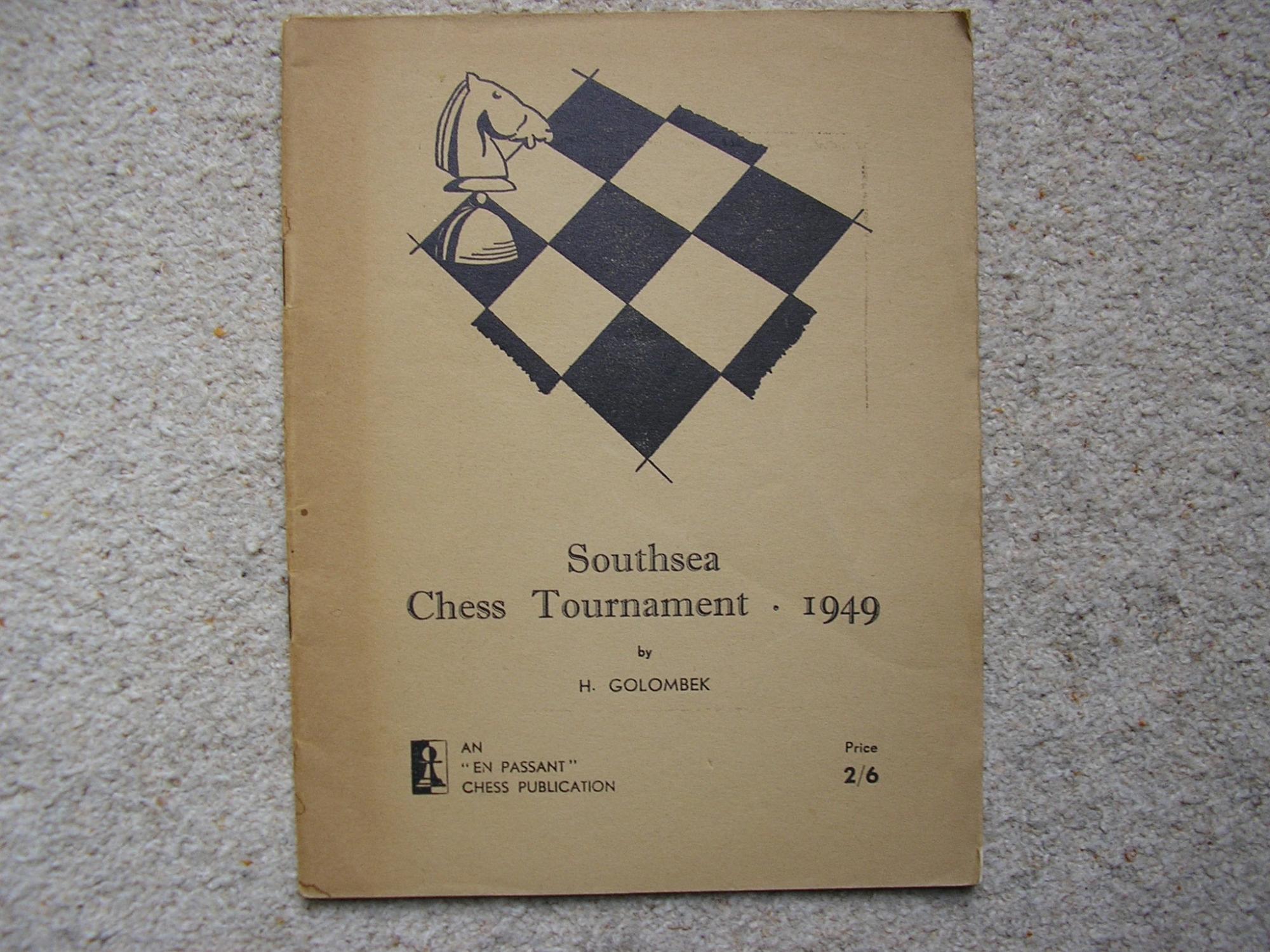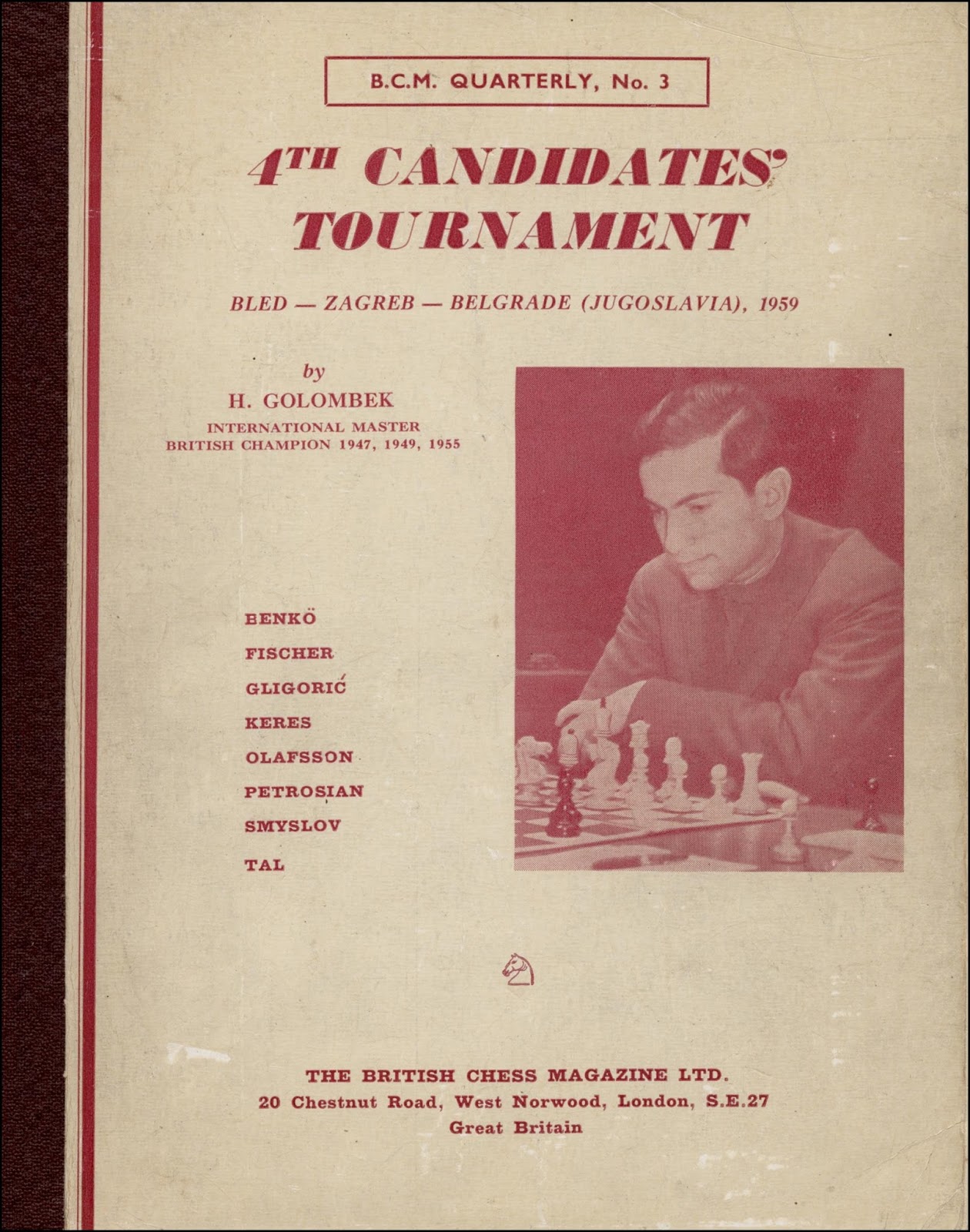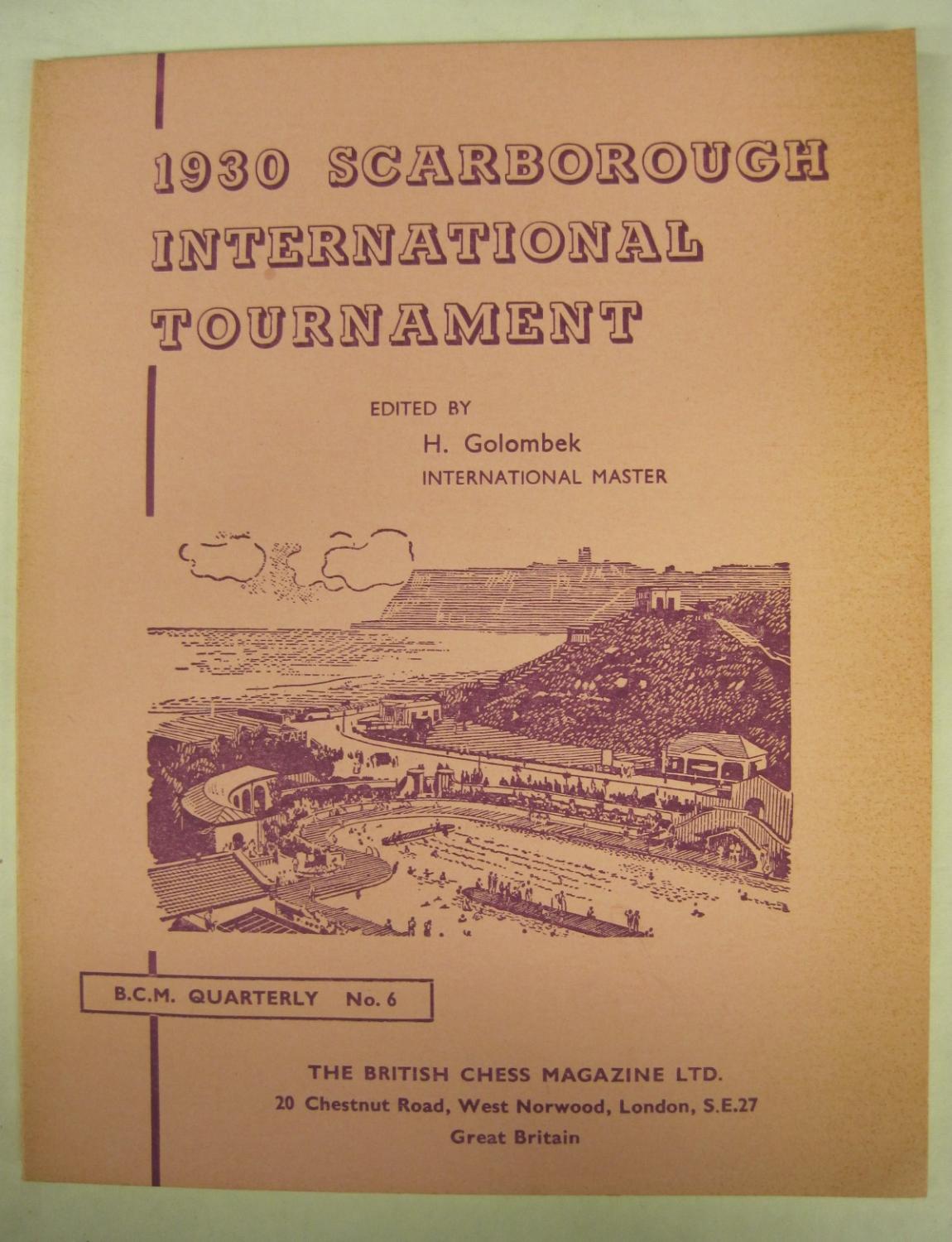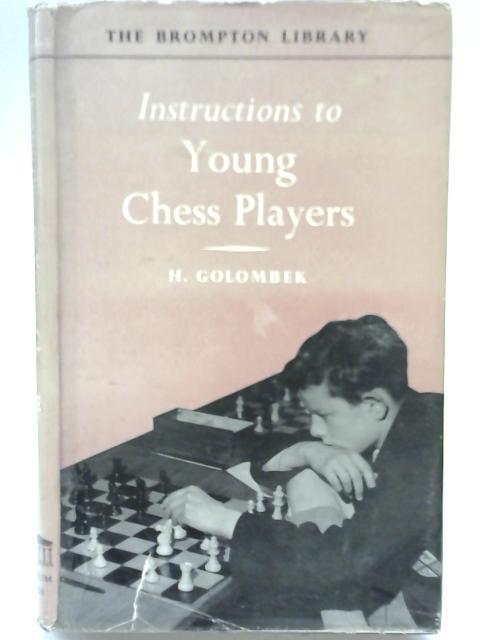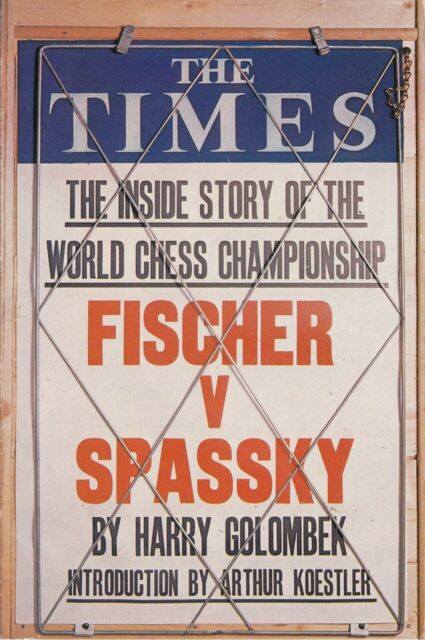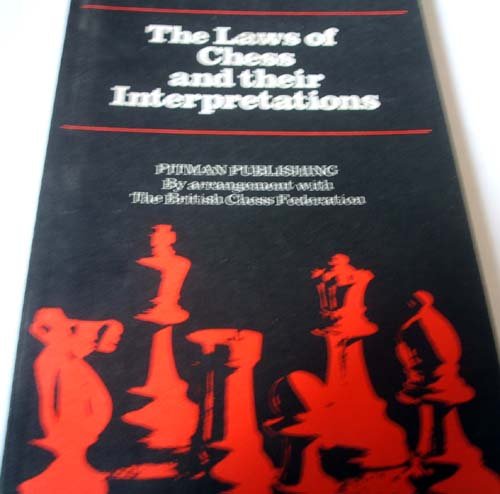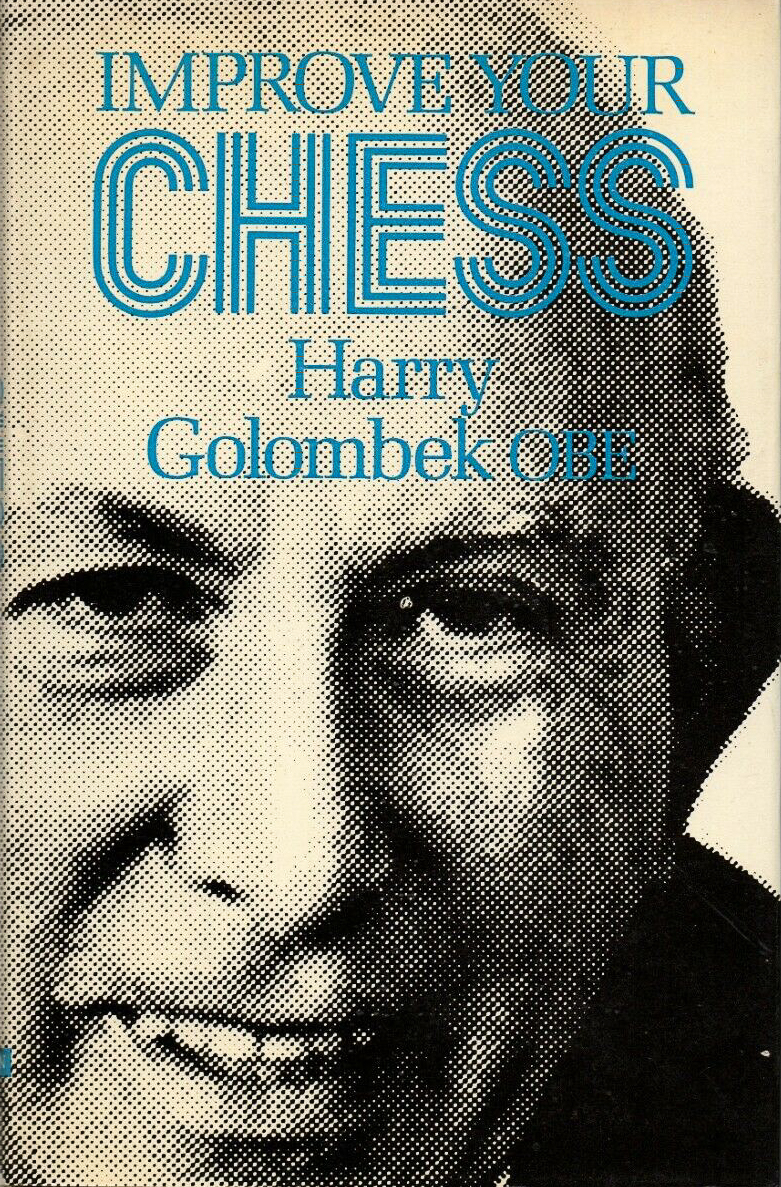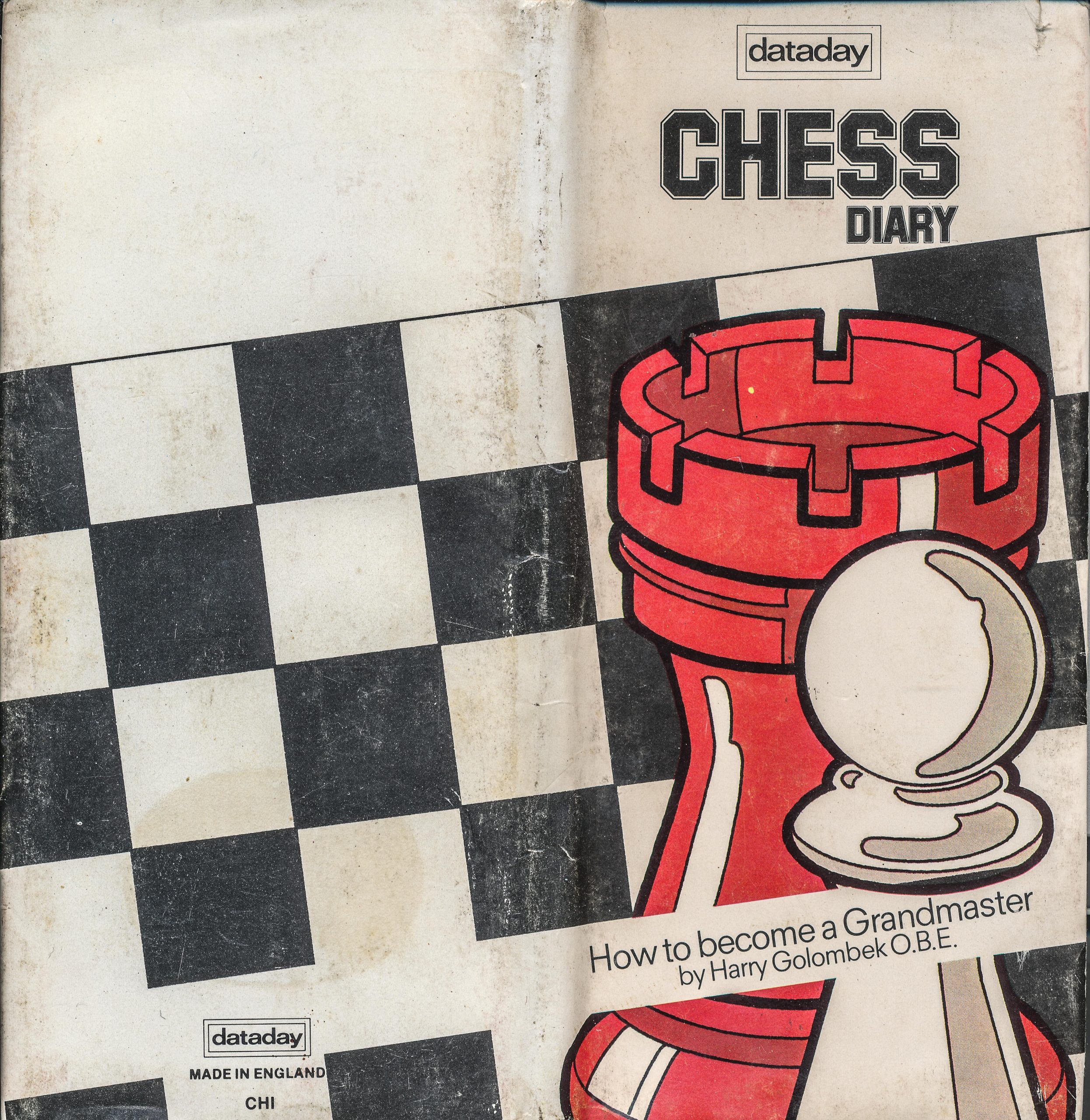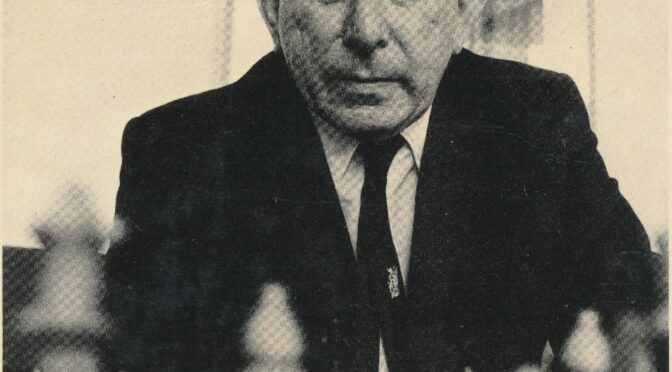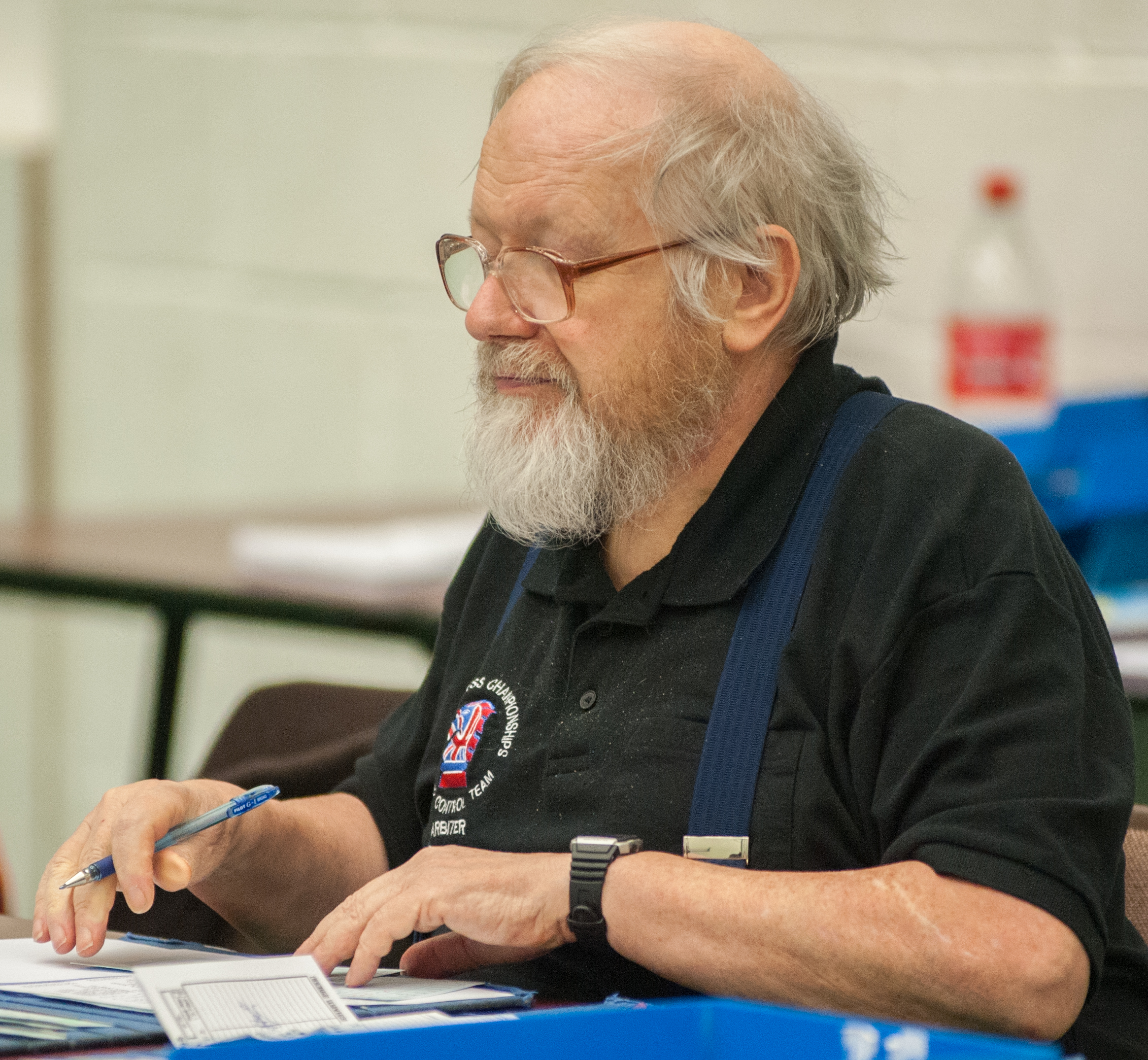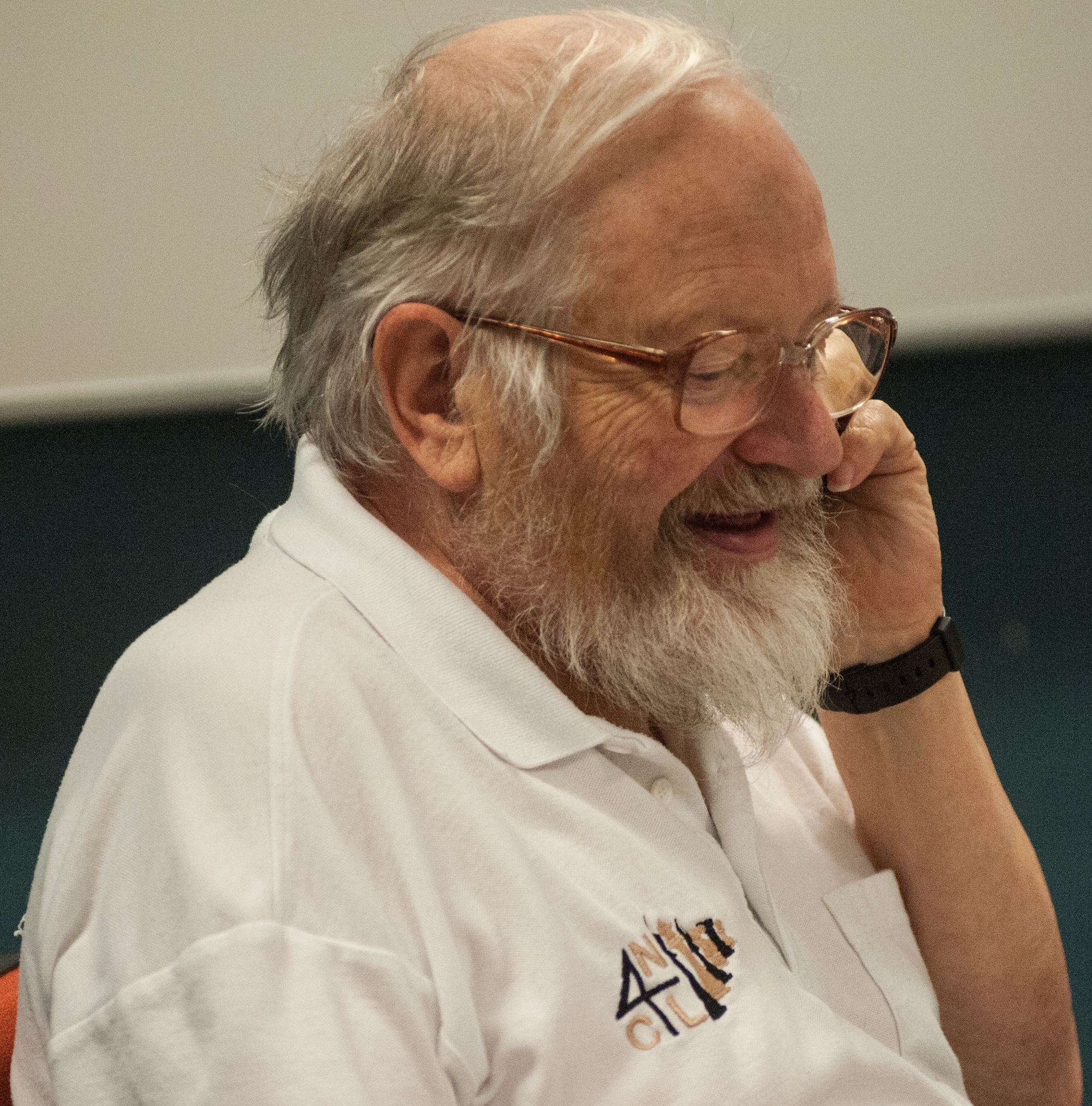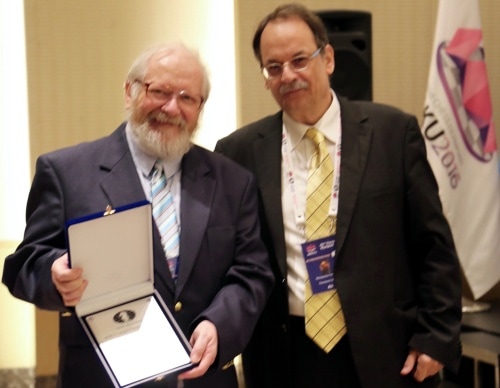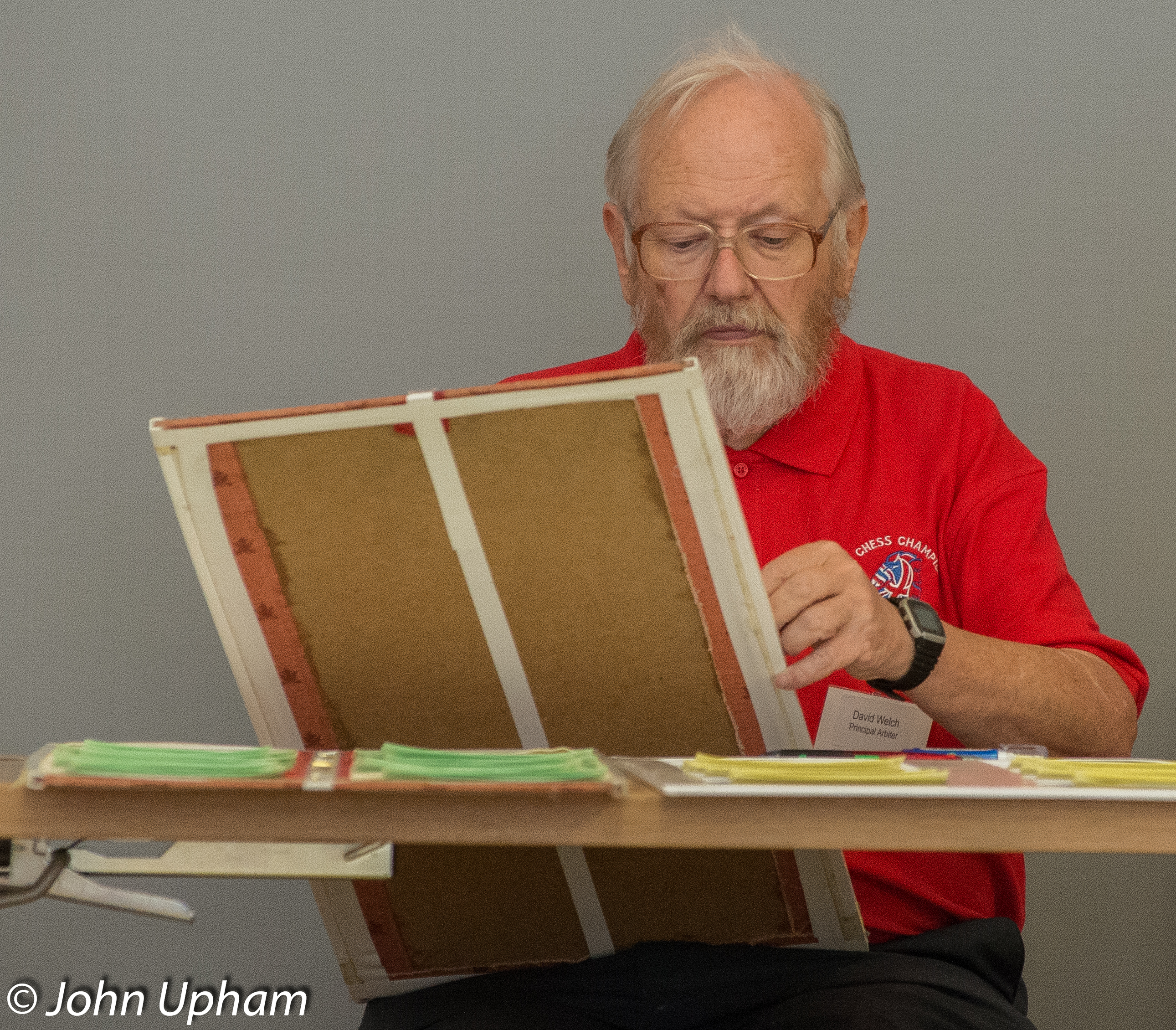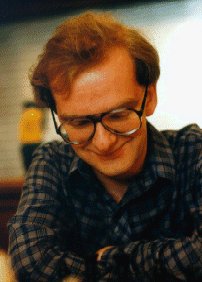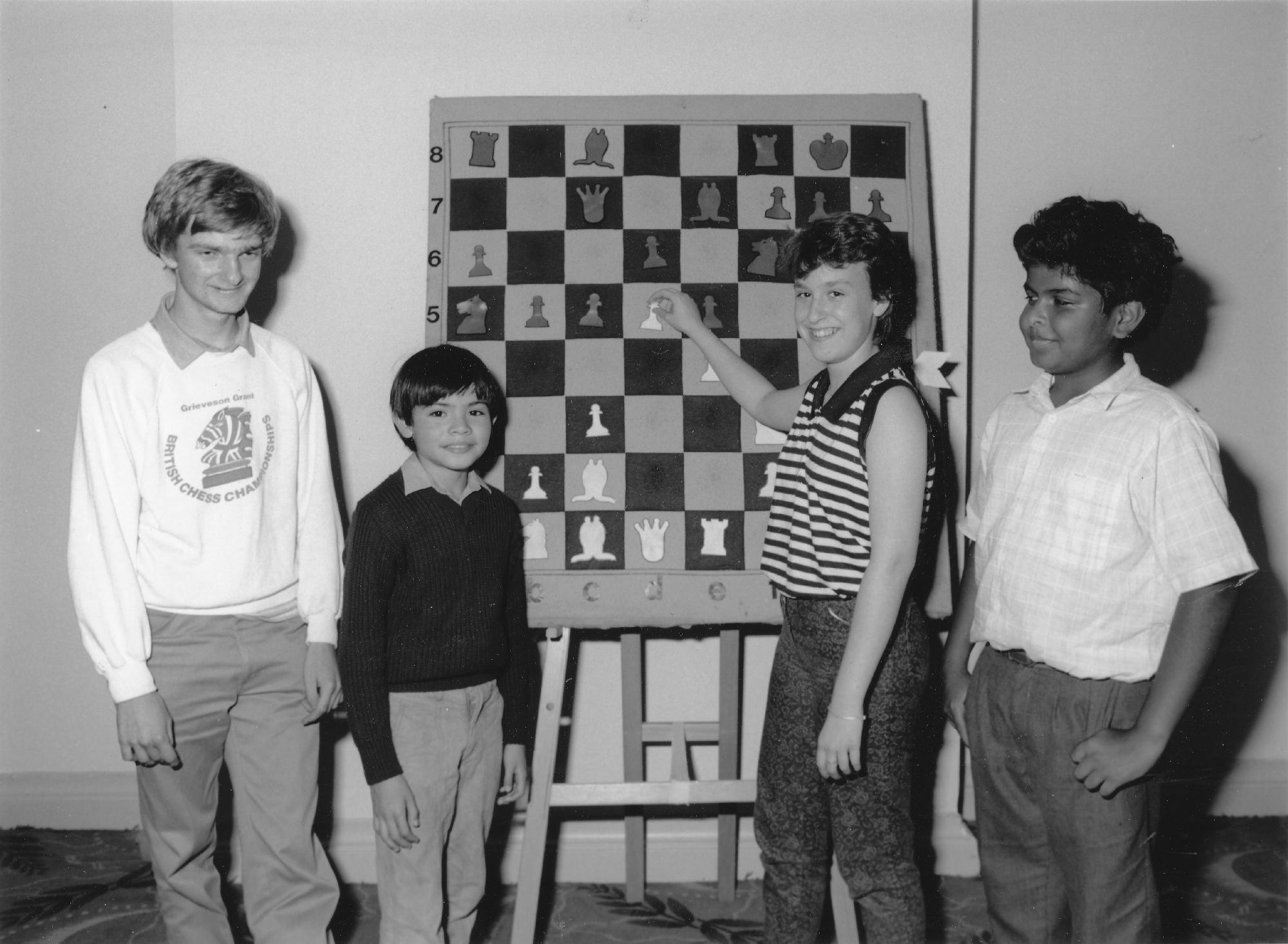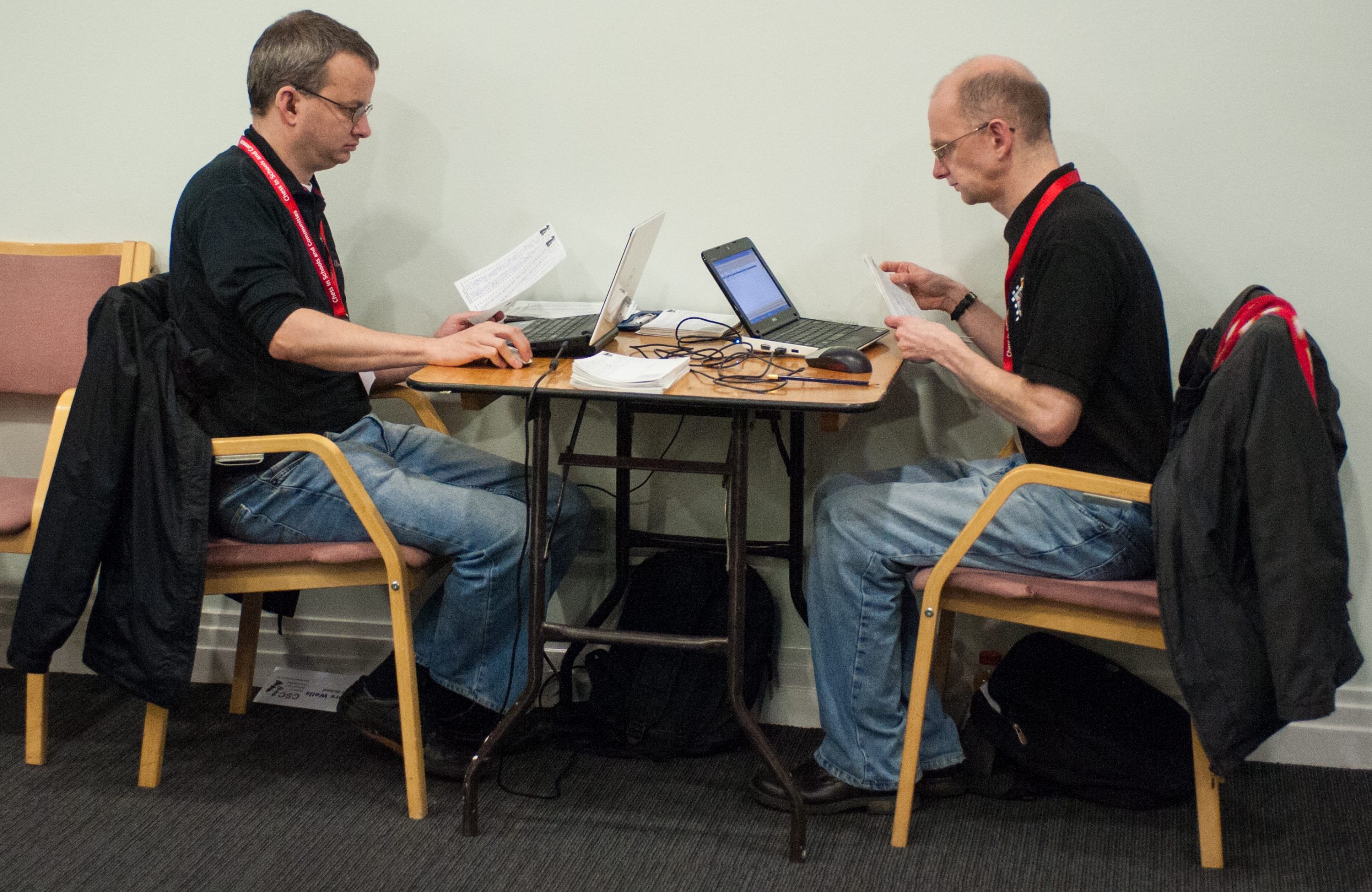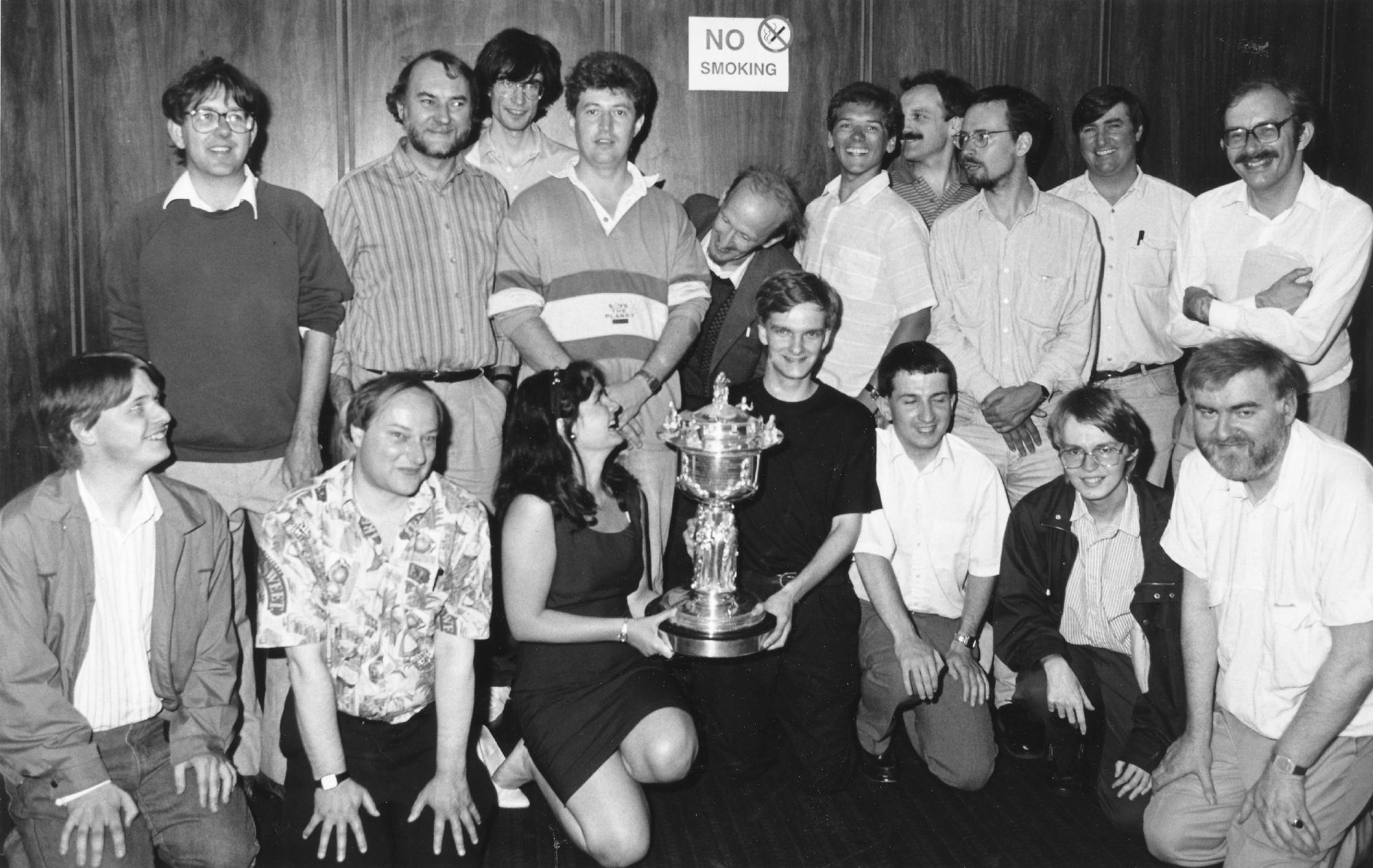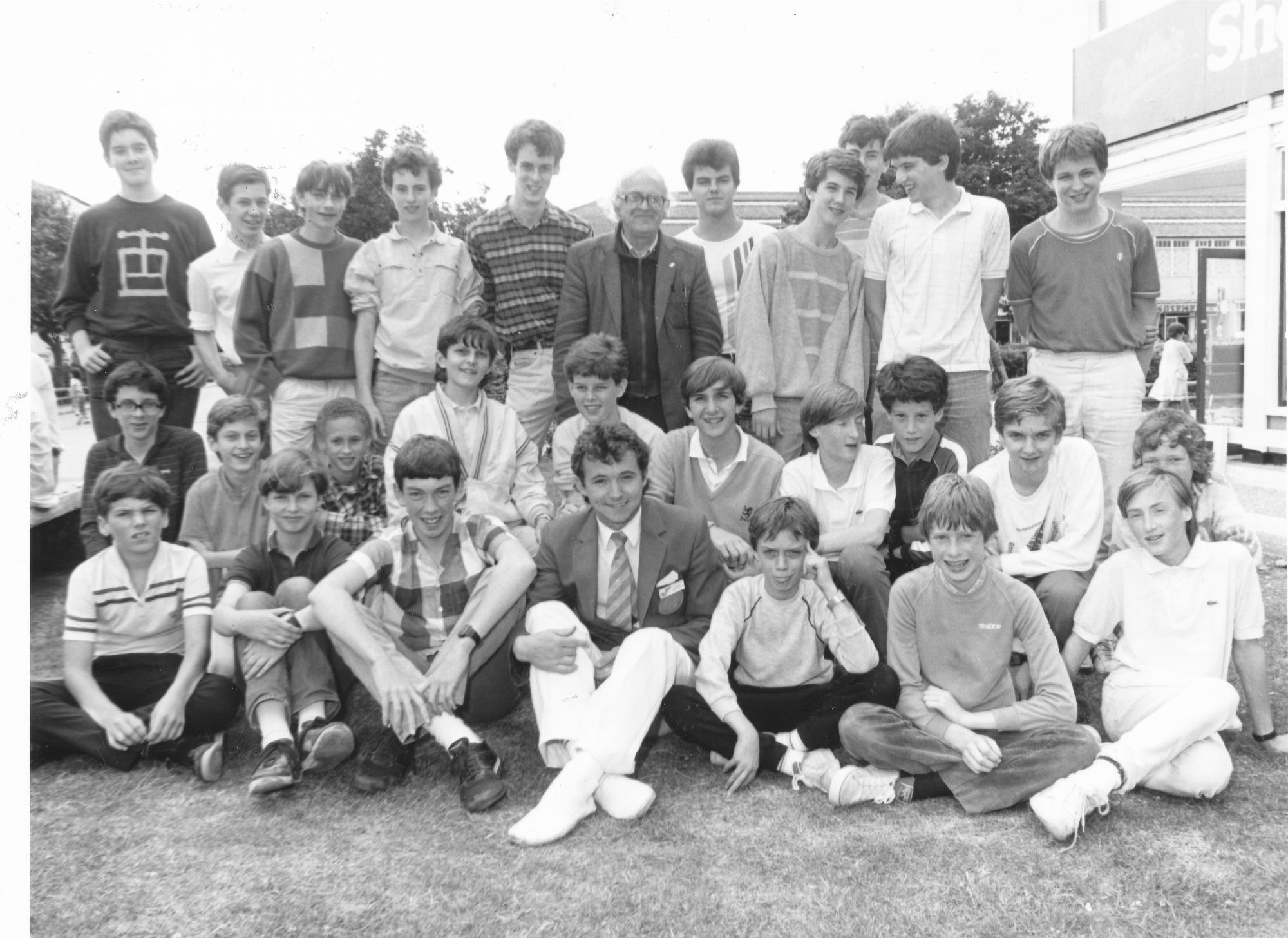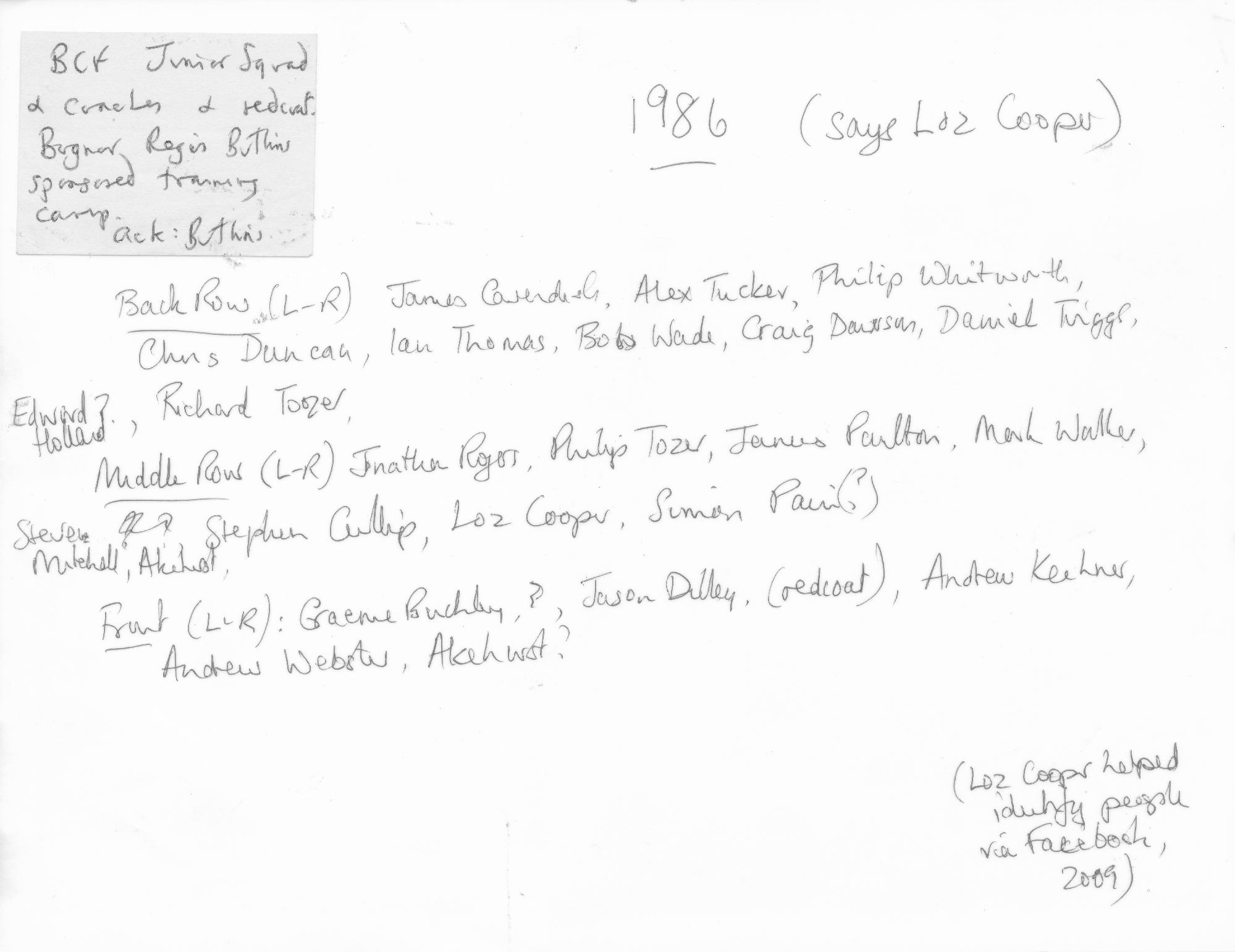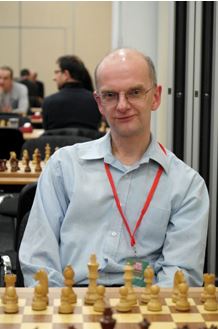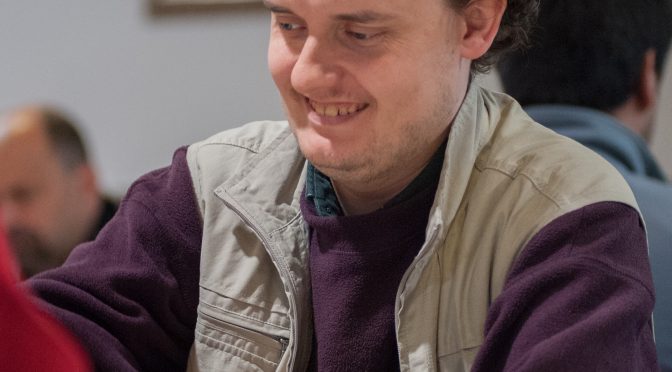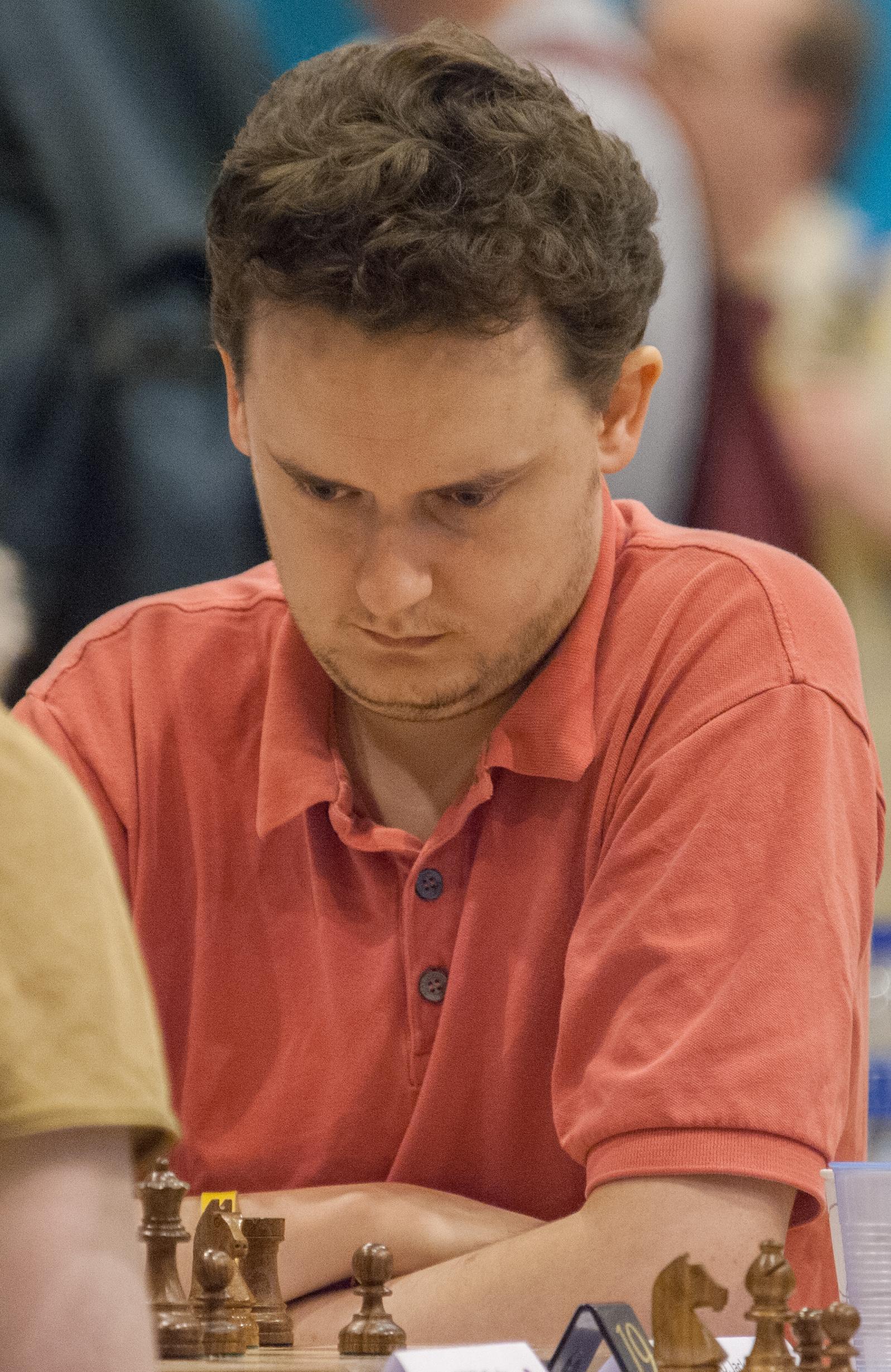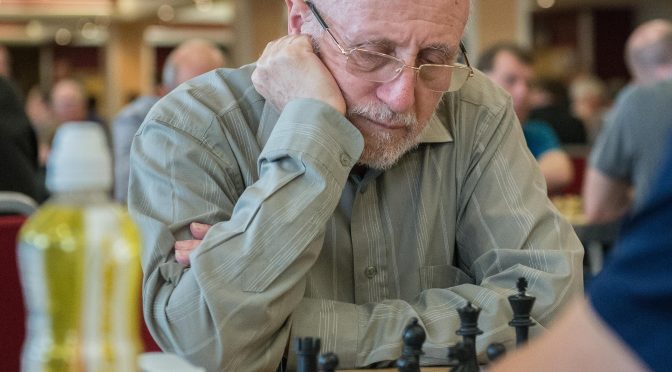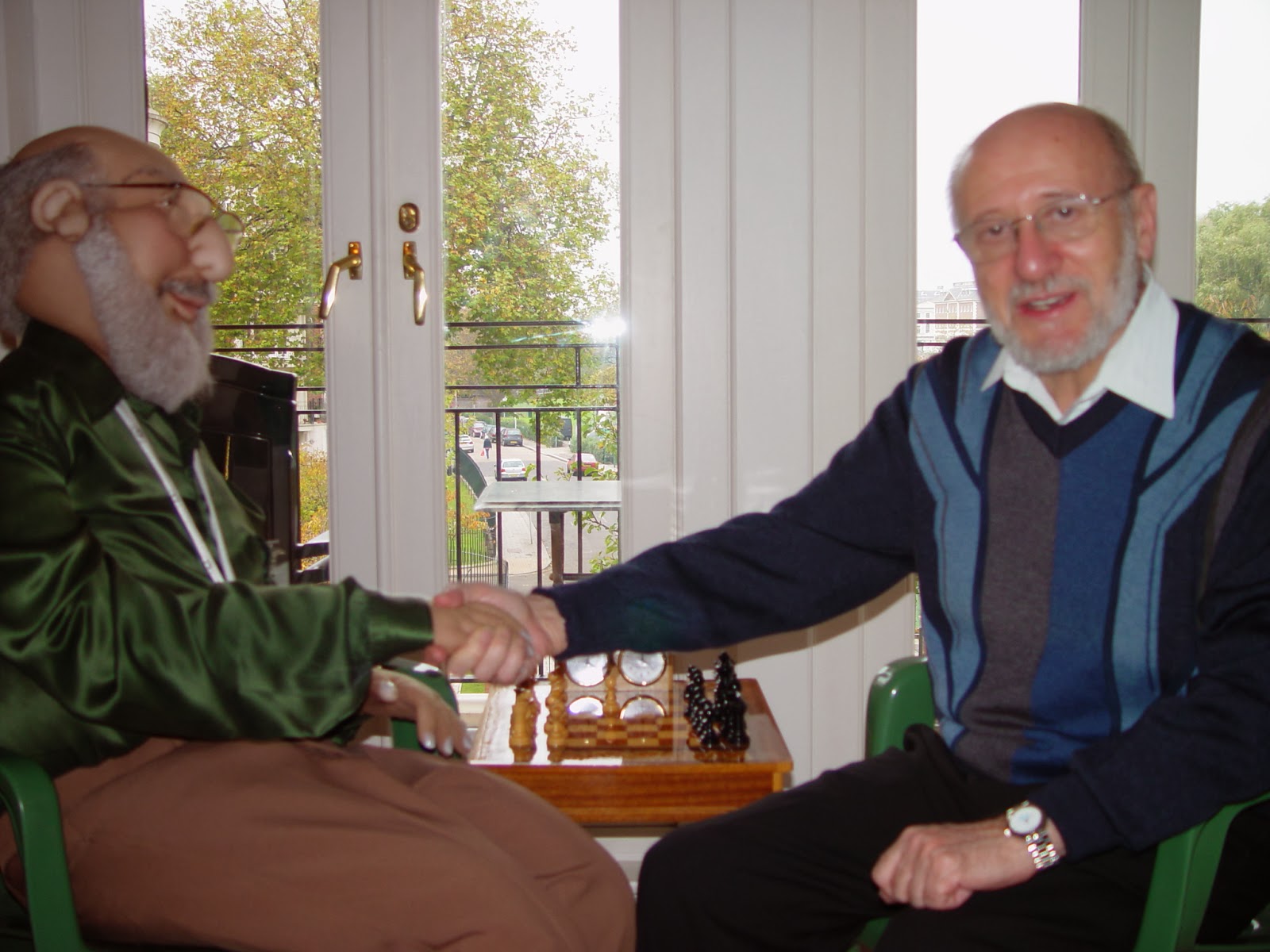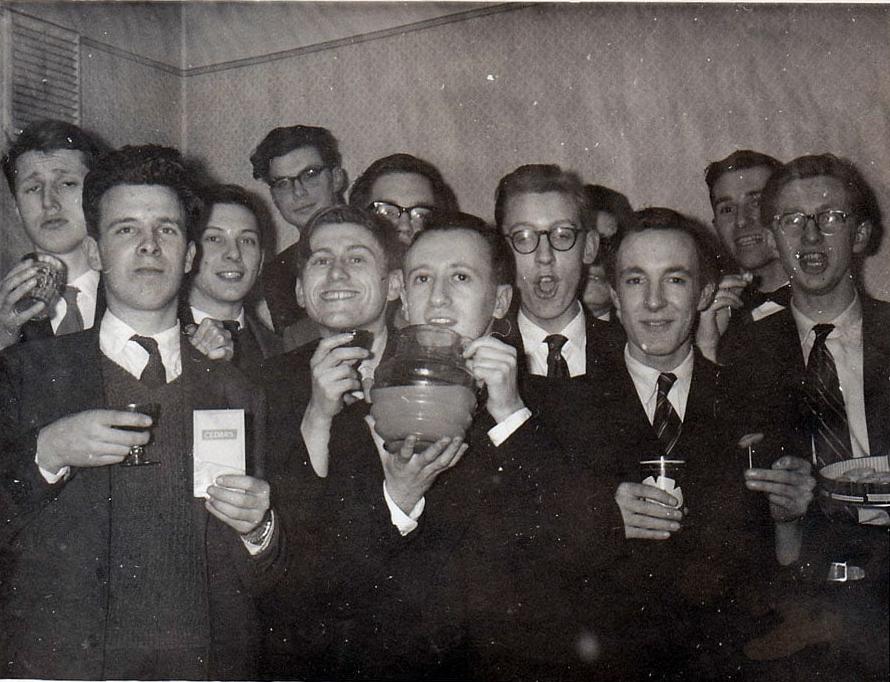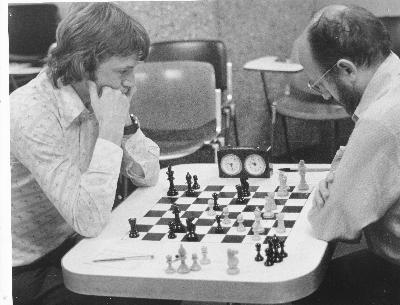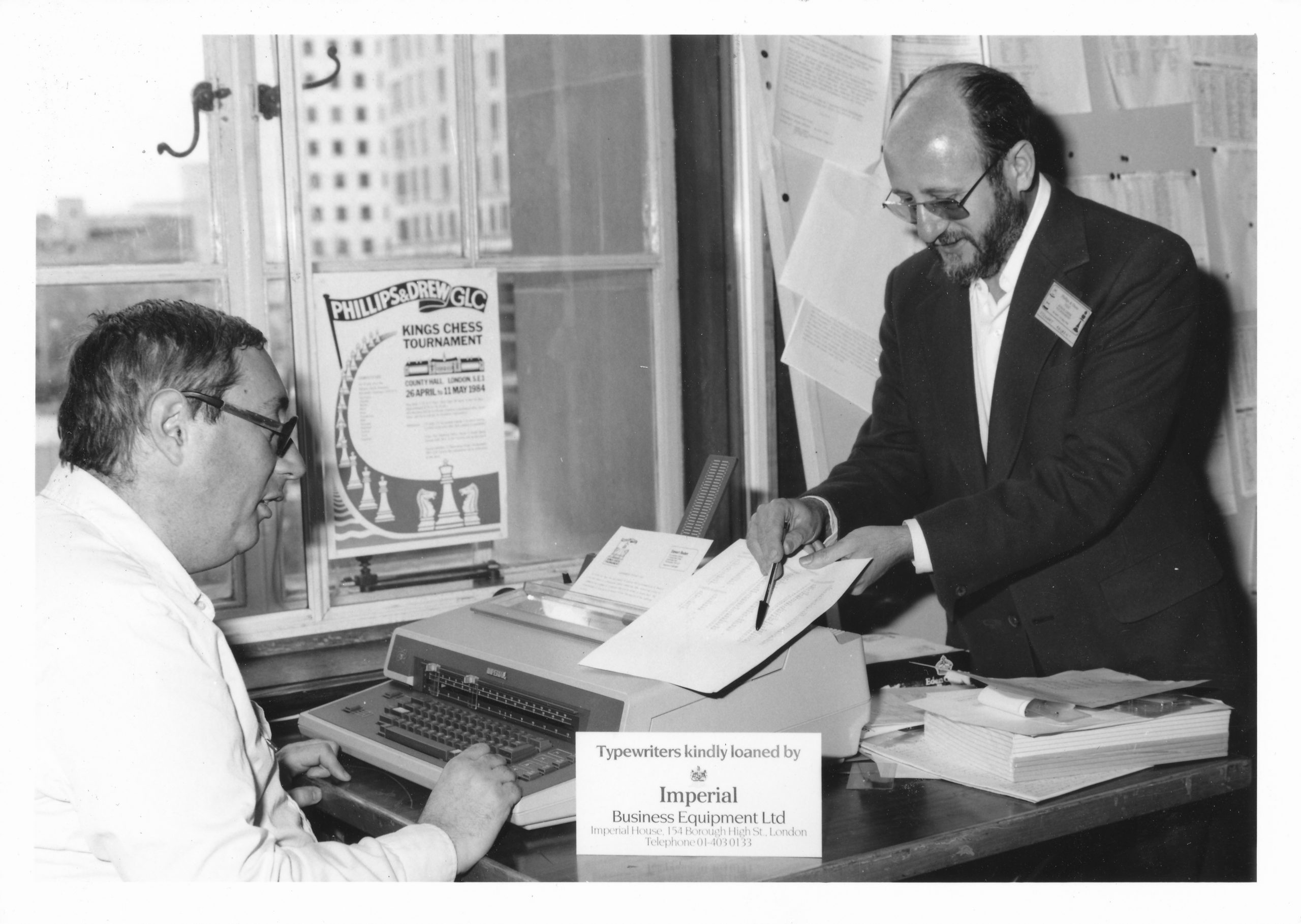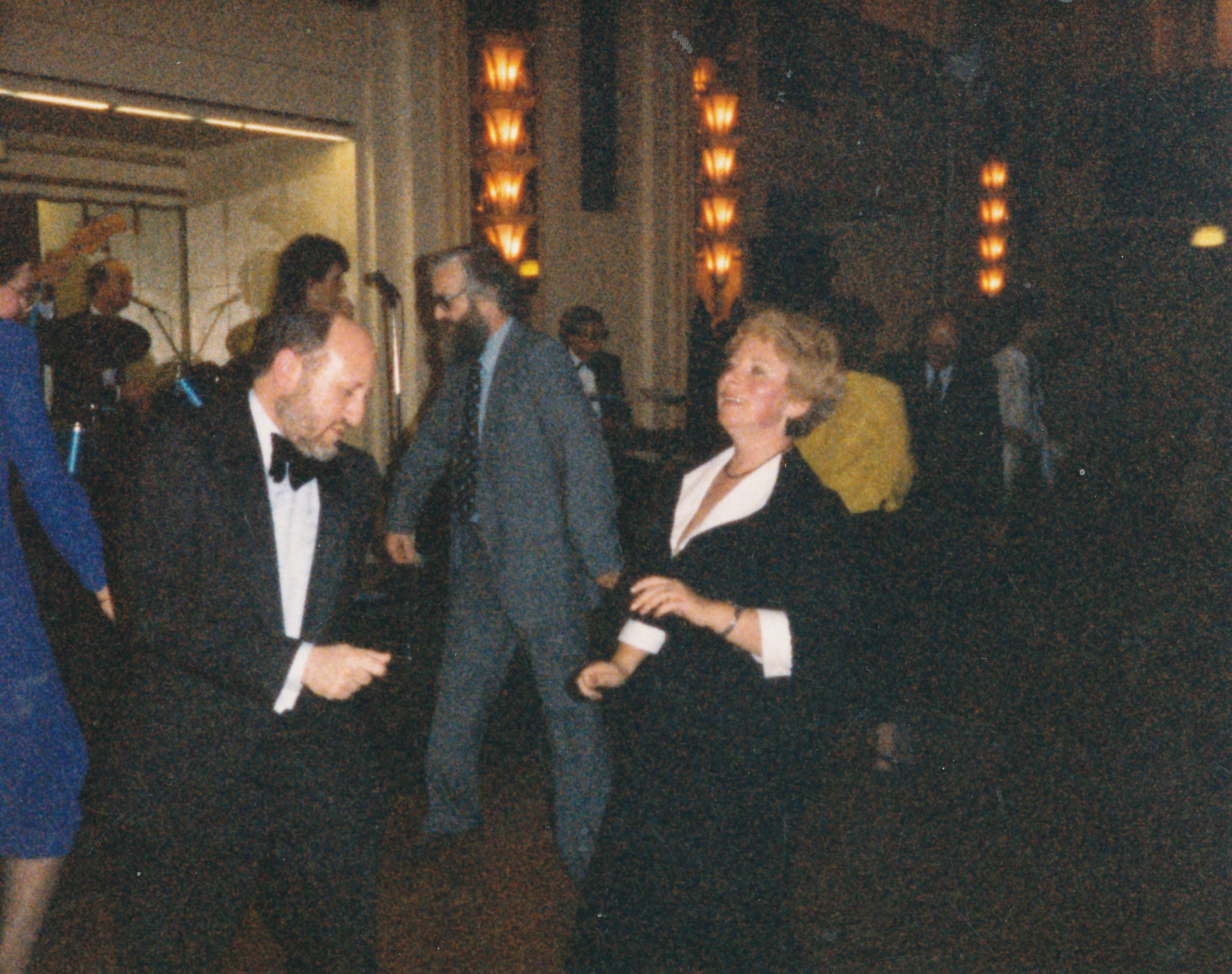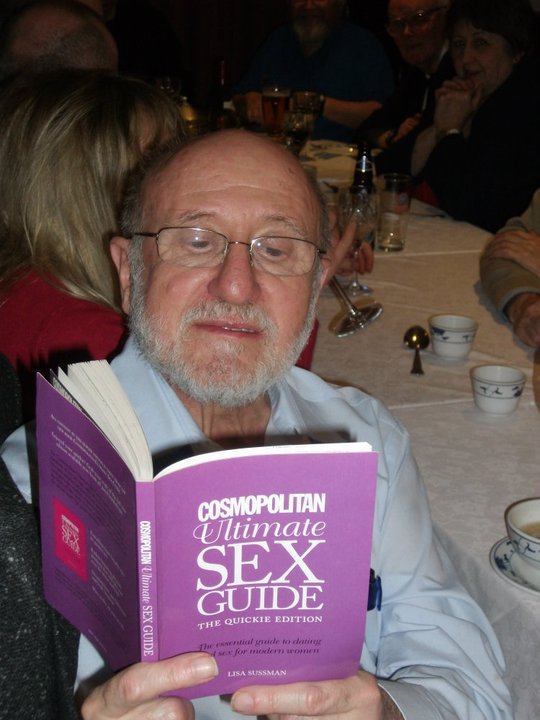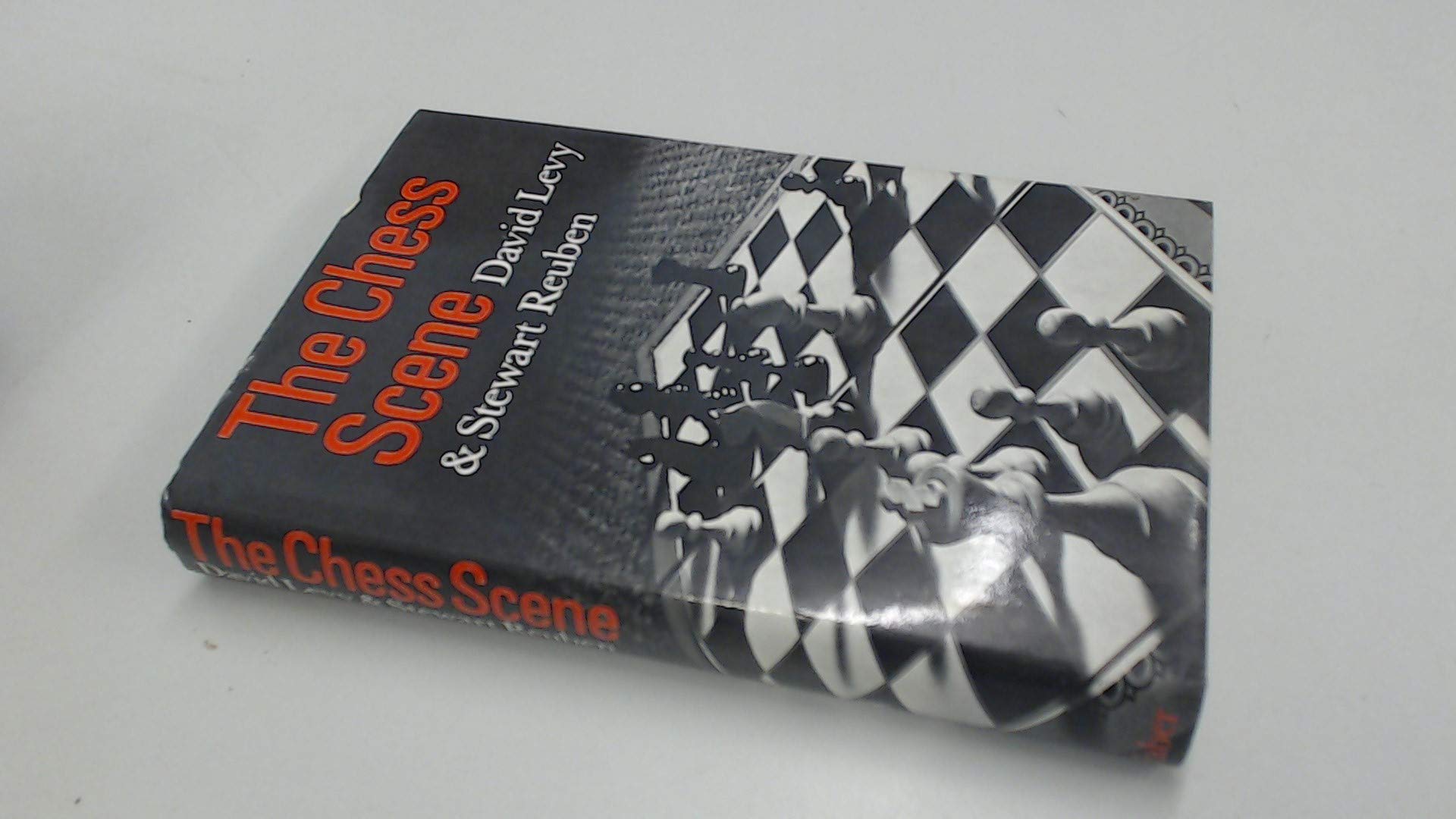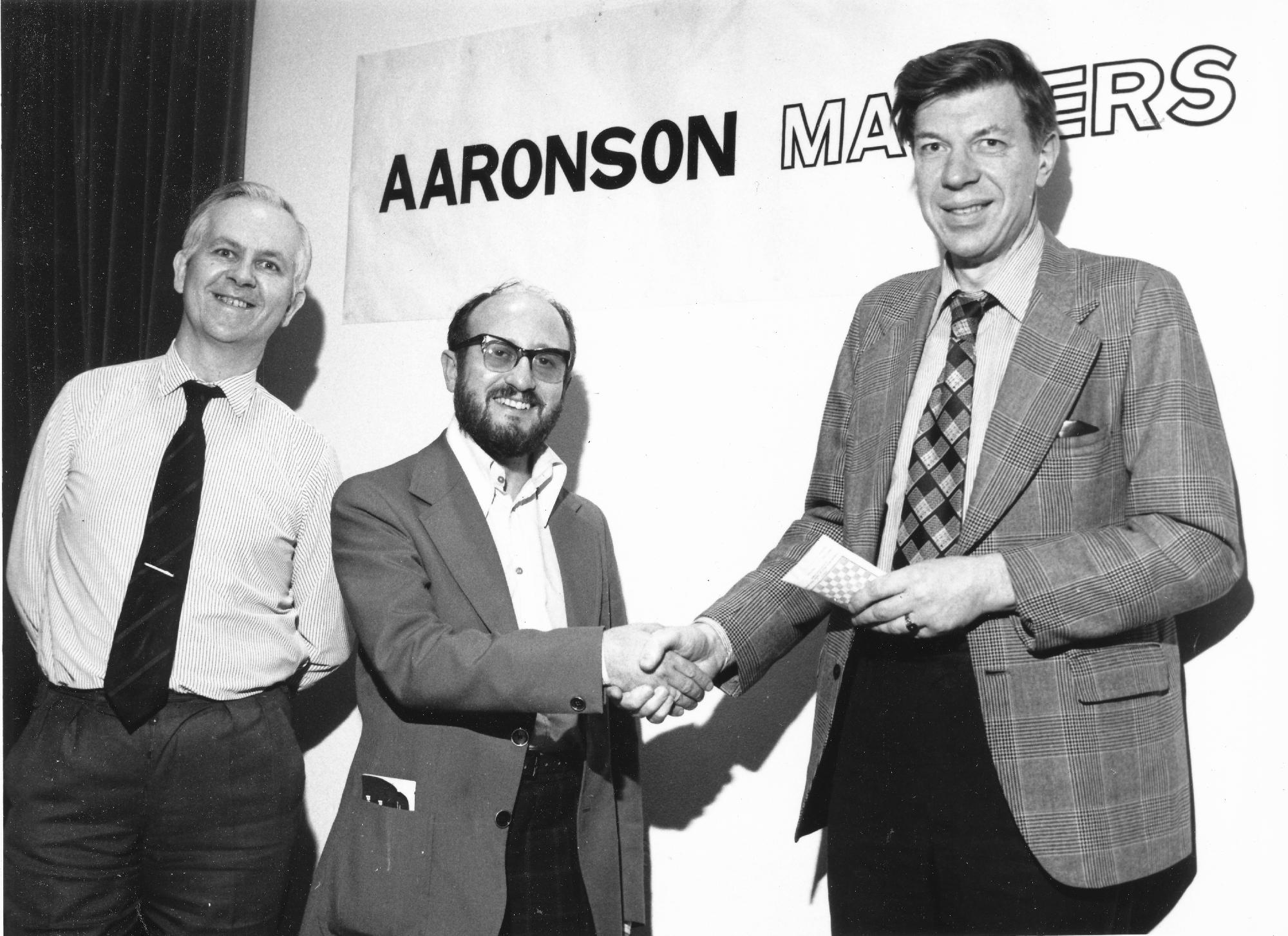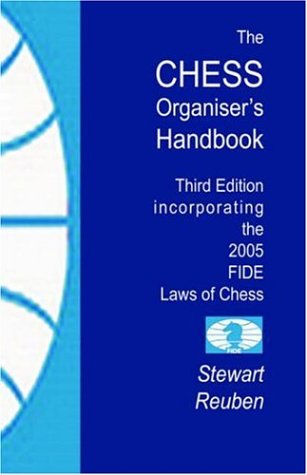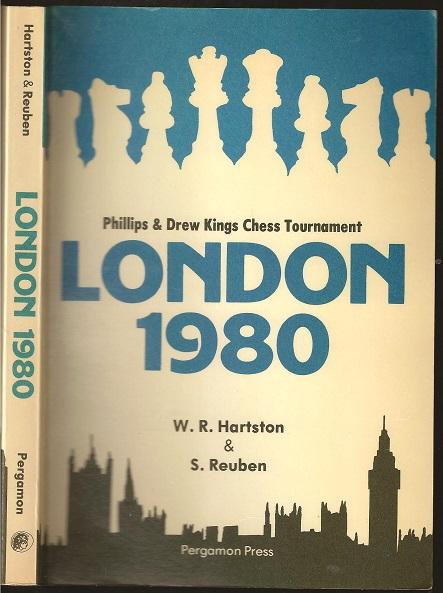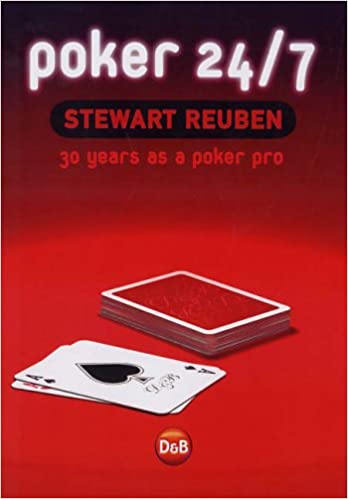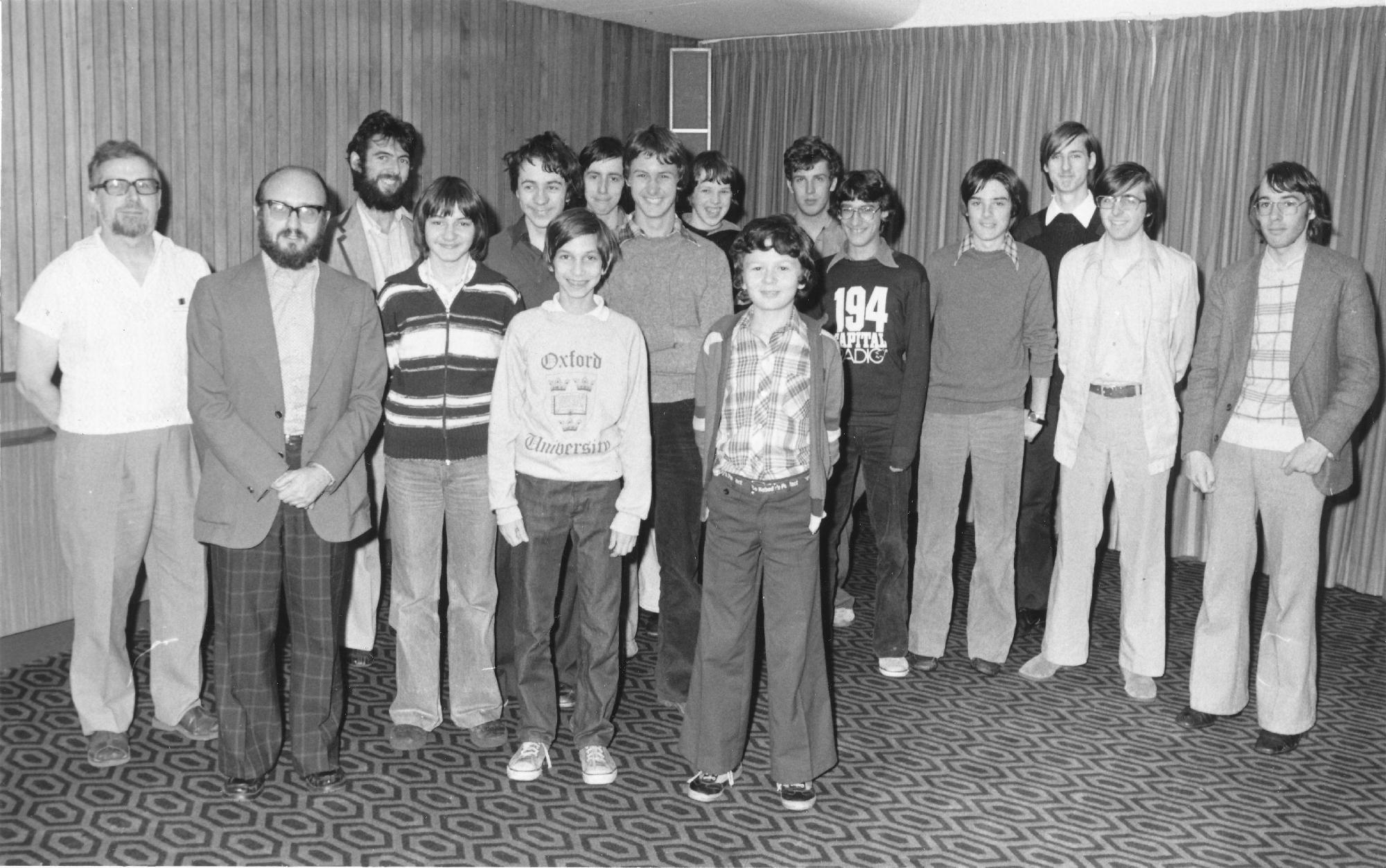
We remember Harry Golombek OBE who passed away on Saturday, January 7th, 1995.
The Amersham Advertiser of Wednesday, 18th January 1995, on page 6, reported, “His funeral was due to be held as 12.30pm (today), at Chilterns Crematorium, Whielden Lane, Amersham.” (Thanks Steve Mann!).
Harry Golombek was born on Wednesday, March 1st, 1911 in Lambeth, London and his parents were Barnet (Berl) Golombek (Golabek) (1878-1943) and Emma Golombek (née Sendak) (1883-1967).
The Polish word Golabek translates to “small dove” in English.
Barnet was a “Dealer of gas fittings” and was 33 when Harry was born and Emma was 26. Both of his parents were born in Zambov which is in the Lomza Gubernia region of the Kingdom of Poland which existed from 1867 – 1917. Their nationalities are both recorded as Russian in the 1911 UK census. we don’t know (as yet) when Barnet and Emma settled in the UK.
Harry had a brother Abraham (born in 1906) and a sister Rosy born in 1908. The family lived in 200b, Railton Road, Herne Hill. Lambeth.
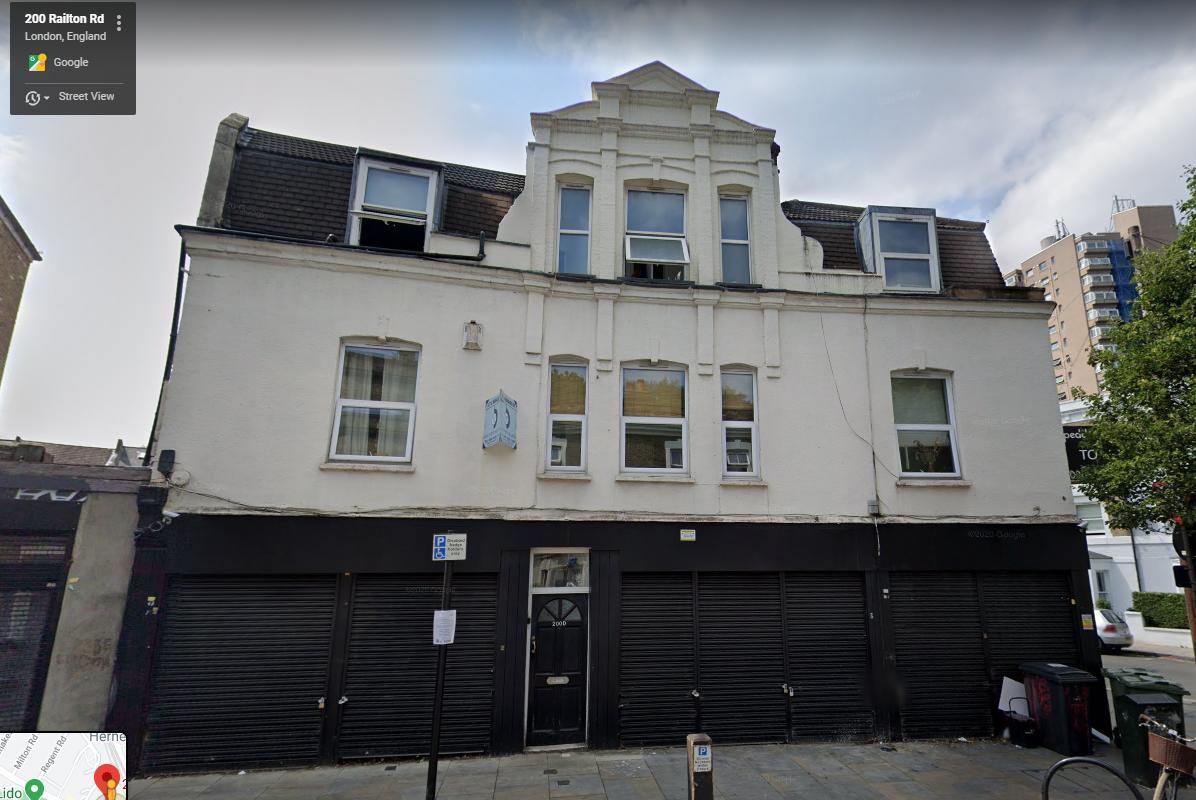
He is a recorded with a service number of 992915 as being a member of The Royal Regiment of Artillery in 1939 and was discharged as having reached the age limit in 1956 aged 45 and one day.

Harry married his long time nurse, Noel Frances Judkins (1941 – 2011) in January 1988 and they had (born in 1992) one son : Oliver Golombek-Judkins BVSc MRCVS who is a successful Somerset based veterinary surgeon. The marriage was recorded in the district of Kensington & Chelsea.
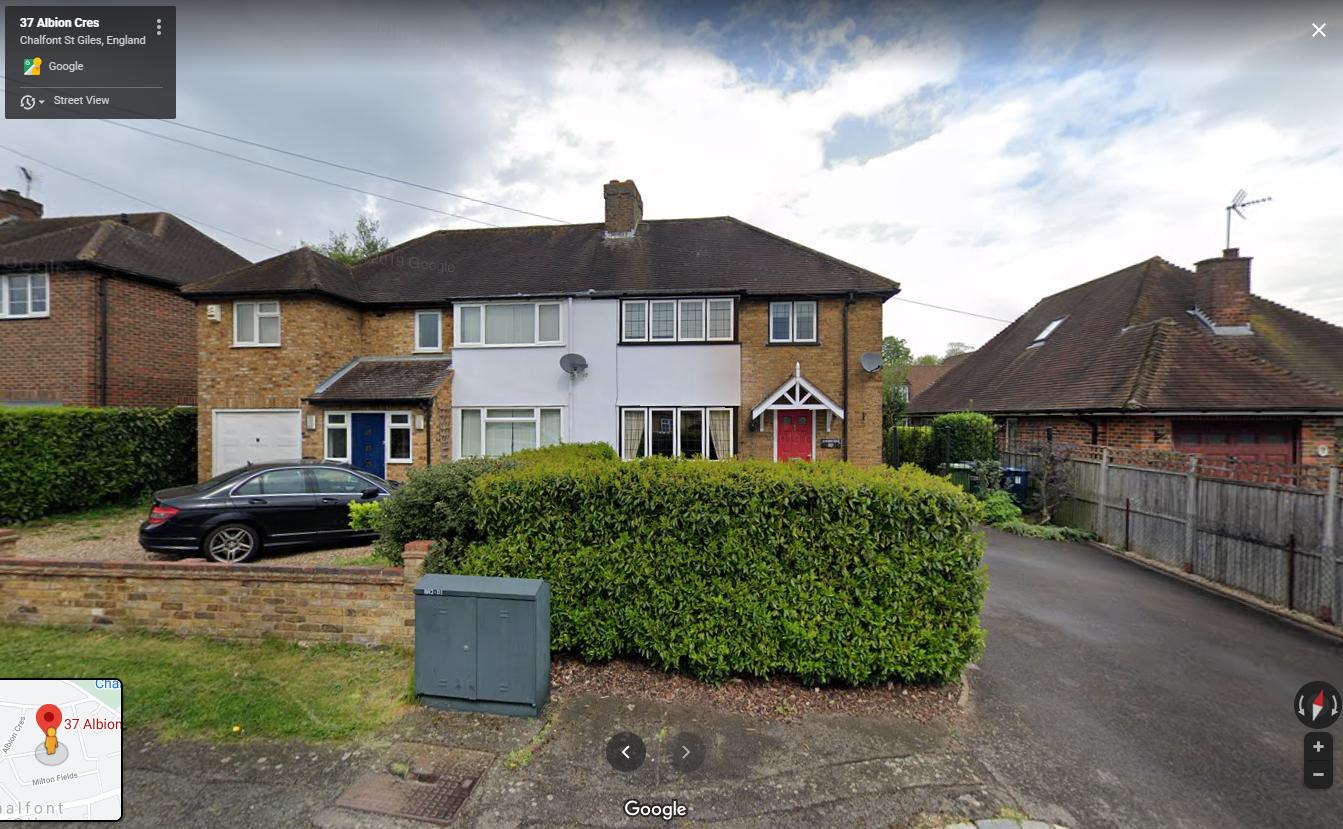
The date of probate was 22 Mar 1995 and the executor of HGs will was David Anderton OBE.
In 1966 Harry became an Officer of the Order of the British Empire (OBE), Civil division awarded in the 1966 Queen’s Birthday (rather than New Years) Honours list.
The citation read simply :
Harry Golombek. For services to Chess : He was the first UK person to be so honoured.
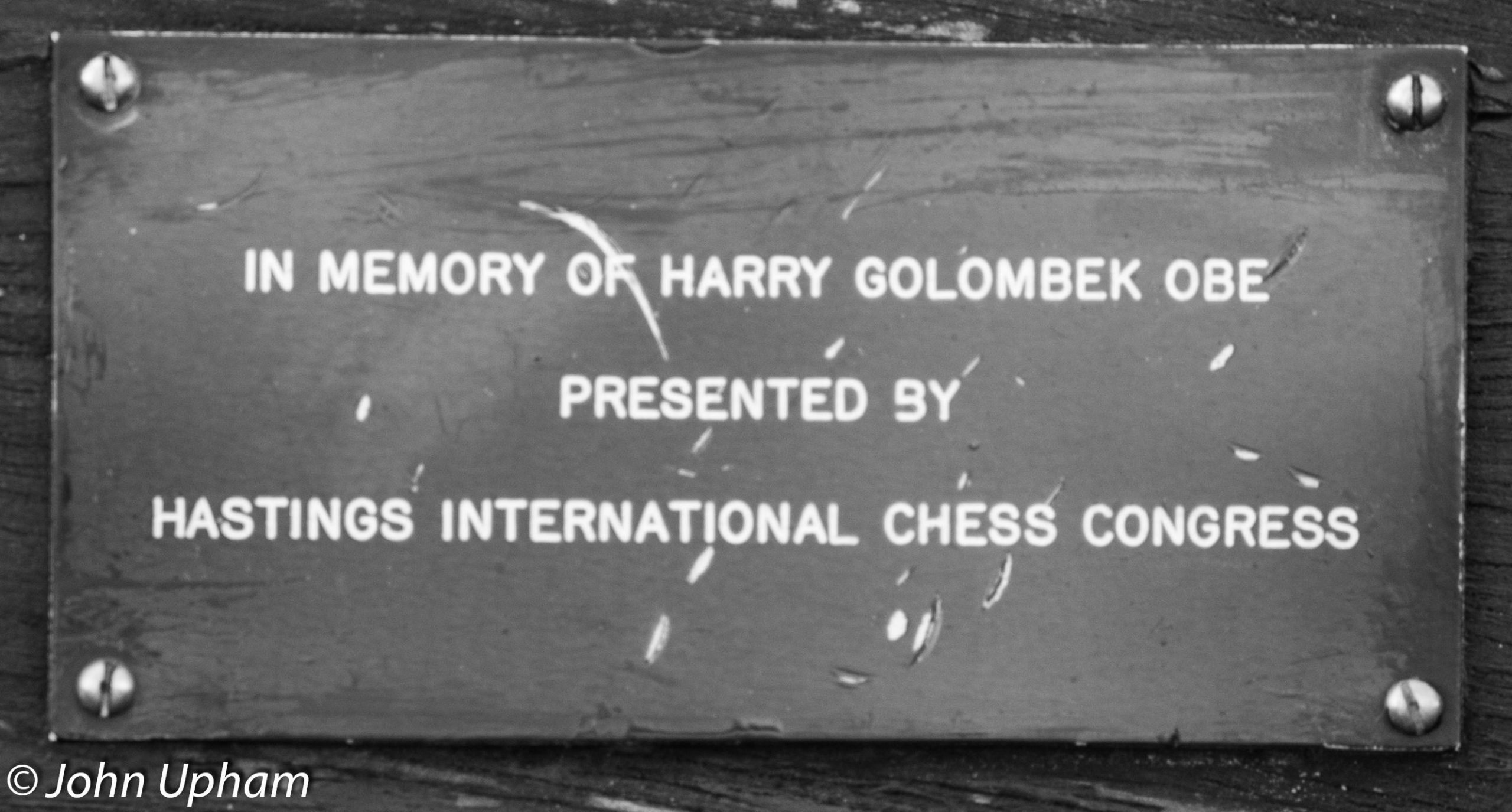

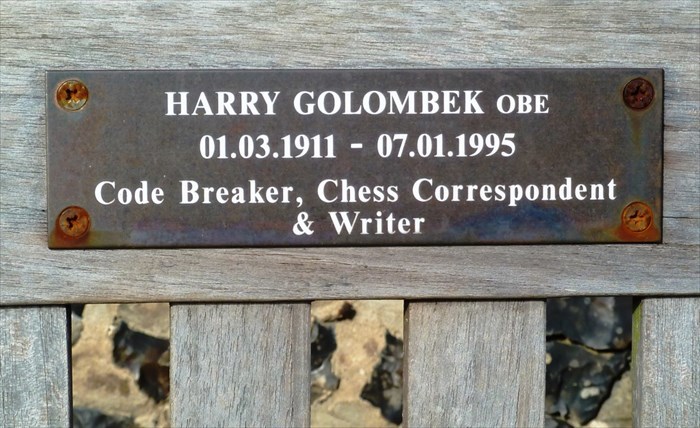
Harry was Southern Counties (SCCU) Champion in the 1955-56 and 1963-64 seasons.
Harry was in 1974-82 a FIDE Zonal President and from 1978-96 he was the FIDE Permanent Fund Administrator.
Sadly, he never received the Presidents Award for Services to Chess from either the BCF or ECF : maybe a posthumous award is long overdue?
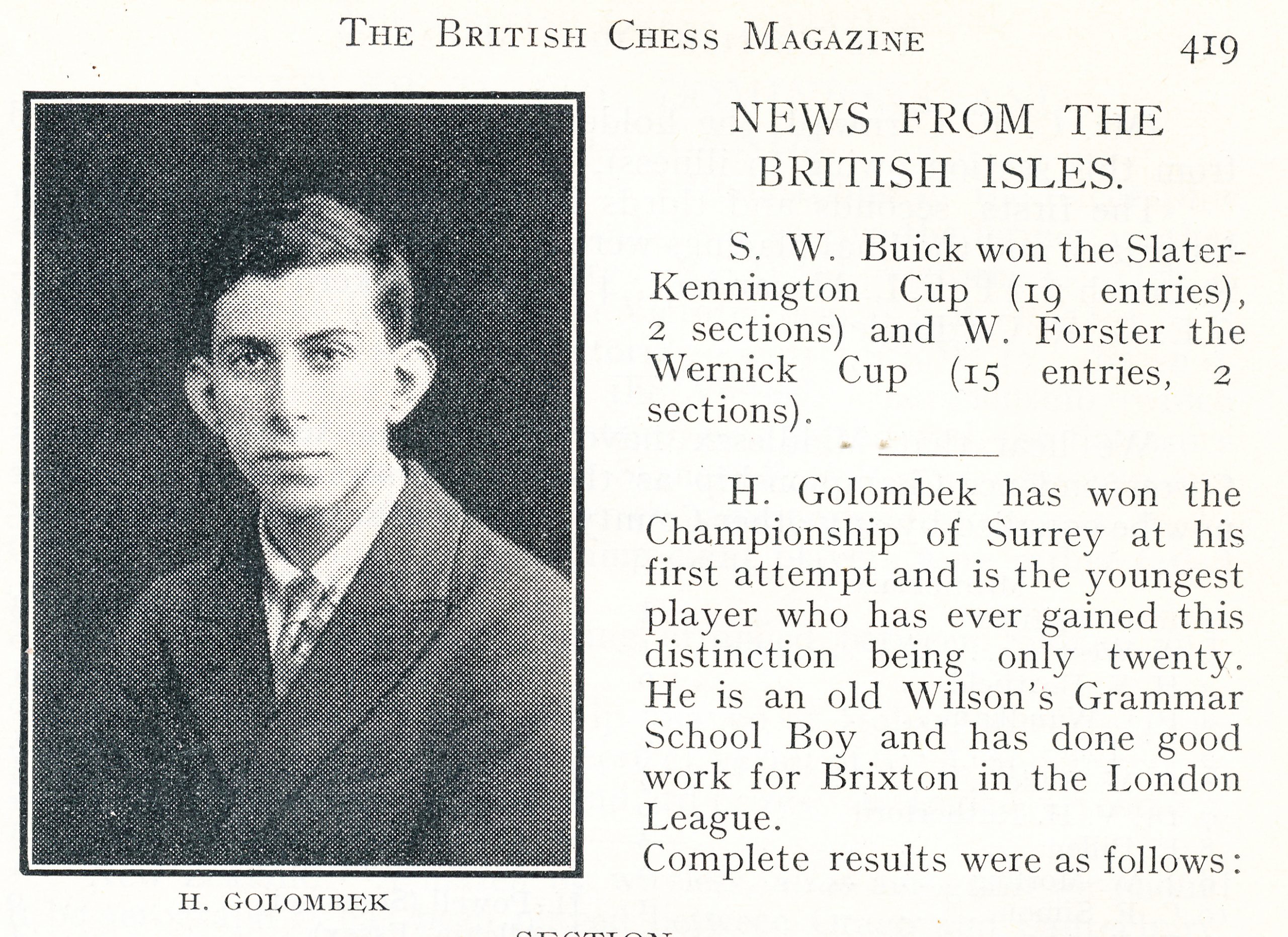
Harry Golombek RIP by Bernard Cafferty
Here (from British Chess Magazine, Volume CXV (115), 1995, Number 2 (February), pp.83-85 is this obituary from Bernard Cafferty :
Harry Golombek OBE (1 iii 1911-7 i 1995), British Champion in 1947, 1949 and 1955, was a grandmaster amongst journalists and book writers, and “Mr Chess” for many of the British public in the decades after the war when his Times column was the main source of up-to-date information on the doings of Botvinnik, Bronstein, Smyslov, Keres, Tal and the other top players.
Harry ran a weekly Saturday column along with daily reports during World Championships, British Championships, Hastings, Paignton …when only The Guardian provided a similar service to the chess community up to 1972. I often recall him grumbling at editorial incisions of his column, which, even so, was more extensive and ‘heavy’ than anything we enjoy now. He loved references to music, the theatre and the arts as a parallel to chess. In fact, he was columnist and correspondent with the paper from 1945 till 1985, and columnist of the Observer 1955-1979. His work at The Times came to an end after he suffered a mild stroke, though he struggled on for a time when, in pre-Wapping days, his work was handicapped by ever earlier deadlines.
Harry was the BCF delegate to FIDE for decades after 1948 and played a part in framing the rules. His view was that the Soviet Union, which he visited as arbiter for Botvinnik’s matches in the 1950s and 1960s as well as for the second part of the 1948 World Championship Match-Tournament, did not throw its weight about so much until after 1970 when a sort of cultural offensive in FIDE and elsewhere was undertaken.
Harry played for England at three Olympiads before the war and six after. Educated at a London grammar school, he was the son of immigrant Polish parents who had been repressed by the last Tsar, to whom his father once sent a message of defiance from the safety of England. A favourite reference of his was the London Boys’ Championship of the late 1920s where he first came to prominence.
His first experience of chess journalism came in the period 1938-40 when he was editor of BCM, till being called to army service. Harry worked in the code-breaking department at Bletchley Park during the war; the Official Secrets Act prohibited him from revealing much of what he knew of this fantastic scientific operation where he was associated with such famous names as Alan Turing, Jack Good, Hugh Alexander and Stuart Milner-Barry. A graduate of London University in Modern Languages, Harry had been called up into the Royal Artillery, but his knowledge of languages, particularly German, meant that he was soon transferred to the Intelligence Corps.
Harry was a life-long supporter of Surrey Cricket Club. His family ran a grocery shop near Kennington Oval which he sold after 1945 when he made the decision to become a chess professional’ He was reputed to have one of the finest chess libraries in Britain, which he has left to the BCF to form the nucleus of a national chess library with bequests from Sir Richard Clarke, RJ Broadbent and GH Diggle.
Amongst the many books he wrote, pride of place must be taken by his work on Capablanca’s best games and the one on the 1948 Match-Tournament at the Hague and Moscow as well as a later book on Reti. Who can forget his account of the delay at the Polish border for the train which was taking players and journalists to Moscow from the Hague in 1948? A Polish general, forgetful of recent history, declared that the train could riot proceed since no-one crossed the Polish frontier without the appropriate documentation and security checks (Euwe’s extensive analytical notebooks in Dutch were the stumbling block). It only needed Botvinnik to hear this for him to phone up Moscow and have the Polish authorities overruled by those who enjoyed real power in the post-war world.
Another famous article which comes to mind is Harry’s long account of the 1967 Sousse Interzonal, complete with the J’adoubovich incident, Fischer’s fickleness, and the camel on the beach. This appeared in the BCM, of course, where H. G. was the editor for Overseas News and the Games Department from the late 1940’s until the late ‘sixties. His work here was a cut above most contemporary chess journalism’ since he was so often on the spot at top events and he had access to all of the world’s chess press. As a consequence, he was often the contact man for arranging participation of the world’s leading players at Hastings. From this flowed his work for The Friends of Chess, the body that raised funds and helped gain invitations to foreign events for our up and comings. It was in 1966 that he gained the OBE for services to chess.
Harry had a dry acerbic wit and a fund of stories that made him a welcome after-dinner speaker and lecturer. He seemed to be a life long bachelor, but he married late in life (this corrects an error in the Times obituary of 9 January. In his declining years he spent his last days in a rest home for the elderly in Gerrards Cross where his main contact with the outside world was Gerry Walsh who had often driven him to and from the Hastings Congress in the last couple of decades of his life.
A Grandmaster Amongst Journalists
Harry Golombek, was, without a doubt, one of the finest chess writers ever, and his lengthy stint as Overseas News editor of the BCM results in some classic reports.
As a tribute to Harry’s work we (BCM) have decided to reprint word for word, his extraordinary account of the 1967 Sousse Interzonal. The article that follows is an exact reproduction of his eyewitness report, as it appears in the 1968 BCM Bound Volume, January magazine. This was the tournament that had everything: Bolbochan vanishing, Fischer withdrawing, Larsen winning, and much more.
We are sure that our current readers, young and old, will be as enchanted with the tale as BCM readers were nearly three decades ago.
Further Recollection from Bernard Cafferty
Here (from British Chess Magazine, Volume CXXXII (132), 2011, Number 3 (March), pp.150-154 is an affectionate collection of memories from Bernard Cafferty :
“In recalling four decades of knowing the GOM of 20th century English chess, one has to stress the ‘English’ aspect. The ‘Harry’ part of his name was much more significant than the Polish surname, and, though he was the most cosmopolitan of men, who fitted into any milieu, my abiding memory of him always throws up the quirks that are the sign of an Englishman. I wonder how many of my readers recall the classic English actors Naunton Wayne and Basil Radford, whose main preoccupation in their films was…. getting to know the latest cricket score from Lords or The Oval.

Indeed, Harry was a long-time member of Surrey Cricket Club, and once, when he came back from being an arbiter at an international tournament in Tenerife, his main comment to me was not about the event or the players, but rather that the volcanic rock of the Atlantic island made for brackish water, so that one could not get…. a decent cup of tea!
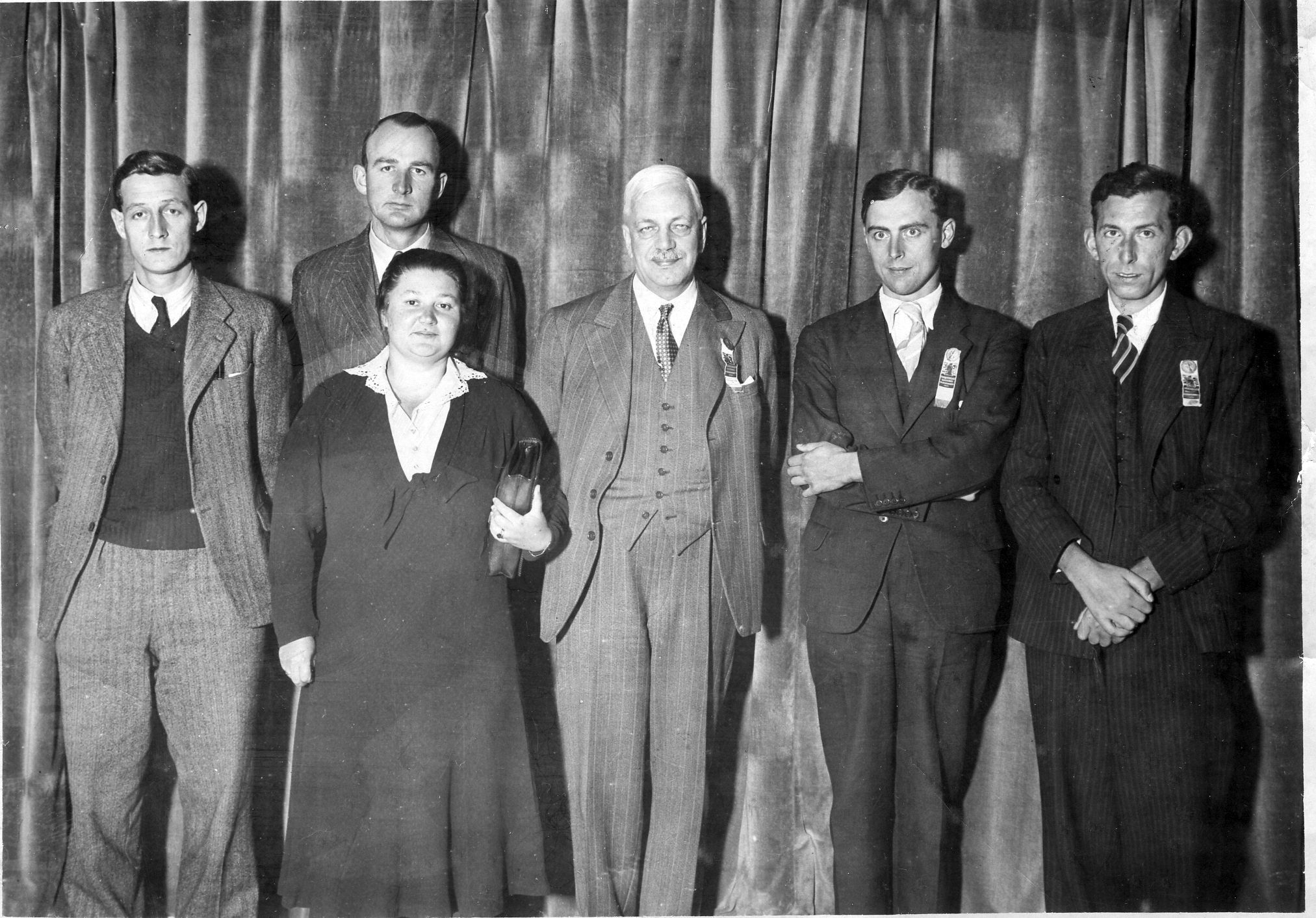
I first met Harry in the early 1950s when I was a teenage student keen on chess and accordingly spent my meagre pocket money on a day out in Manchester to watch the Counties Final match between Lancashire and the all-conquering Middlesex side of those years. Harry and I were about the only spectators. He was there reporting for The Times. I recall that the top board game was between the veterans William Winter and WA Fairhurst. The game duly appeared in the BCM with Harry’s notes, for he was the long-serving Games Editor of that august publication.
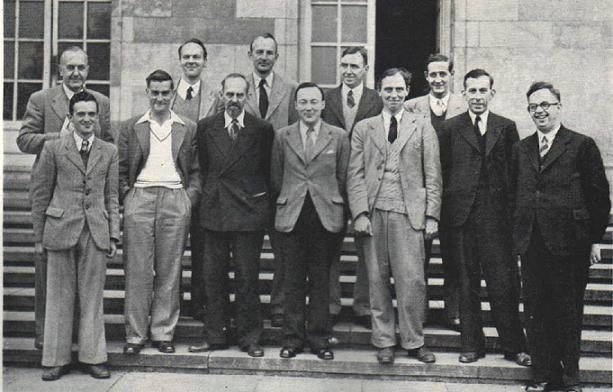
Perhaps I may enter a belated correction to “Who’s Who” here. Some editions stated that he was editor of BCM after the Second World War. Not so. His stint in the editorial chair was 1938-40, after which he was called up, initially being assigned to the Royal Artillery. Perhaps that is a sign of the speciality of the Services – fitting a square peg in a round hole – but he was swiftly transferred to the Intelligence Corps, perhaps at the behest of Hugh Alexander who knew that Harry had studied German at his London grammar school in Camberwell and then at London University.
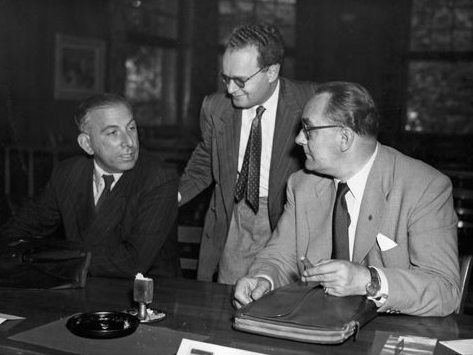
Clearly, under the conditions of 1940, a linguist was just what was needed to make up the team of mathematicians, cryptographers and such like who were tasked with breaking the secrecy of German coded messages.
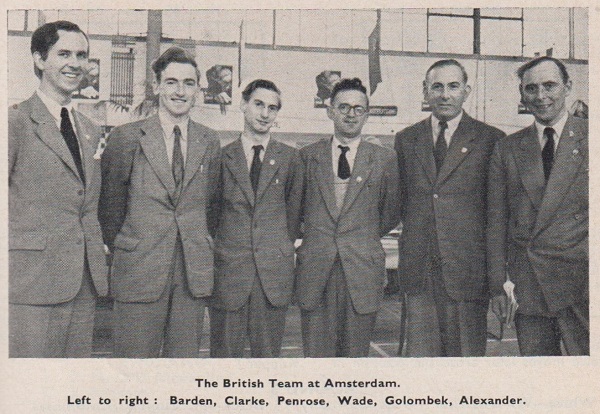
I once mentioned the misunderstanding over the “Who’s Who” entry to Brian Reilly. He laughed it off, saying that it was almost certainly the abiding fault of HG – not taking Brian’s repeated advice to fit a new typewriter ribbon!
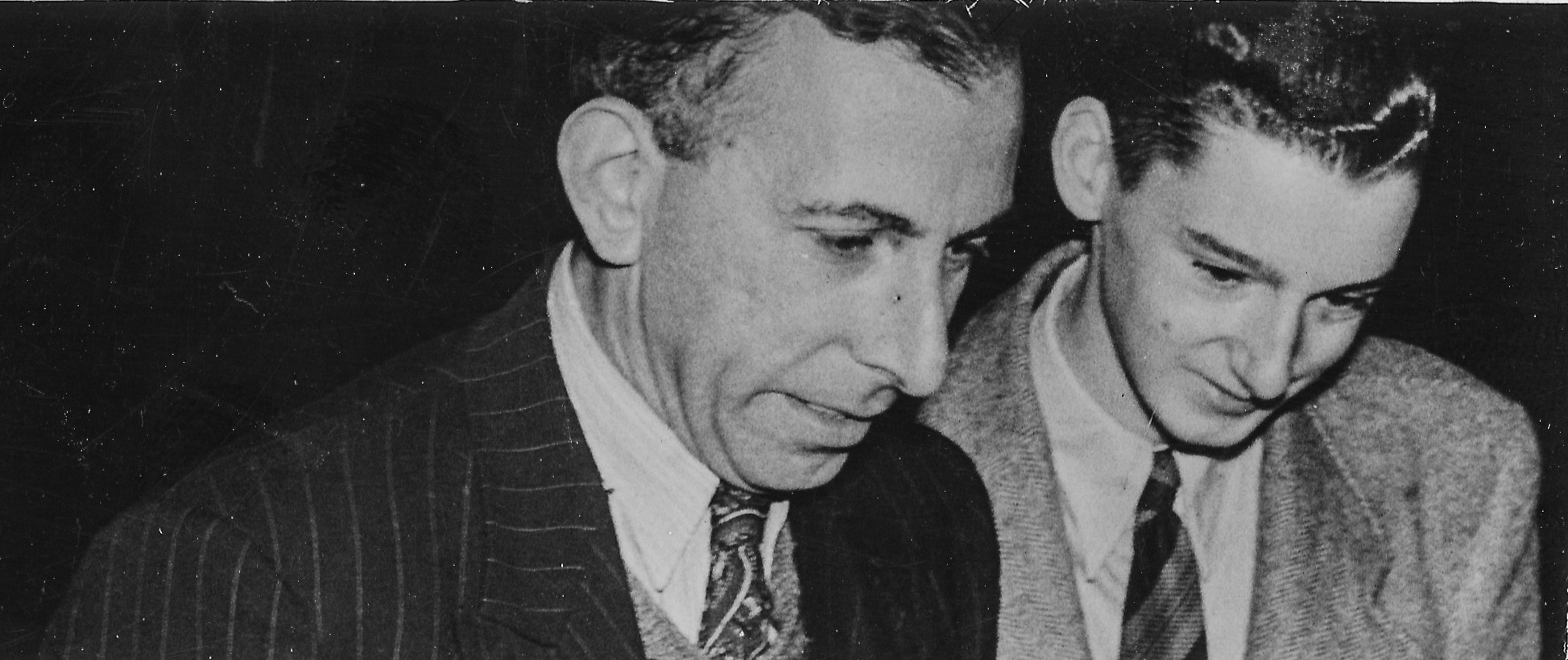
I could relate to that since Harry’s handwritten game scores, written in pencil and descriptive notation, were very hard to decipher, a real scribble that only the man himself could make sense of. When I asked him why he did not use algebraic notation, he commented that he wrote for so many English-language outlets: The Times, The Times Weekend Supplement, Observer and chess book publishers like Bells and Penguin who knew their audiences of those years were supporters of the Pawn to King’s Knight Three school. In fact, Harry commented, he had made more money out of his Penguin book The Game of Chess than from all his other extensive book authorship and journalism.
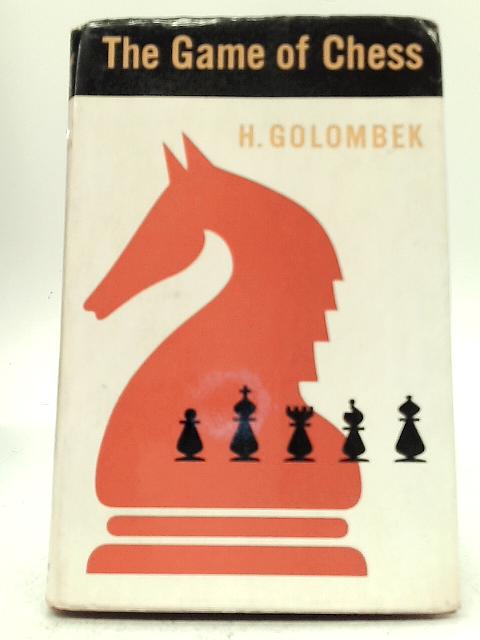
and the paperback version :
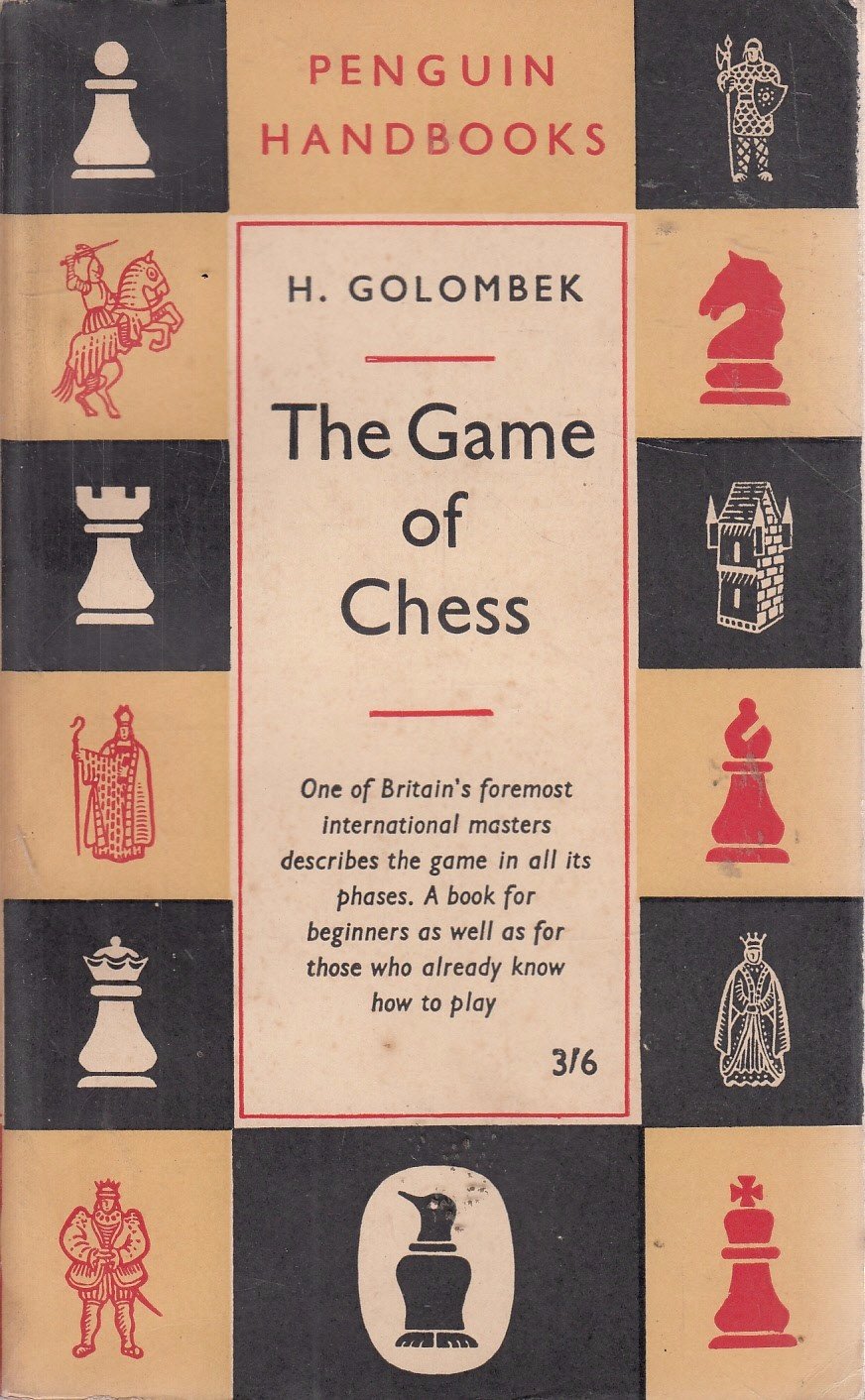
Moreover, it took him about three whole days to assemble the documents and papers to enable him to fill in his income tax form.
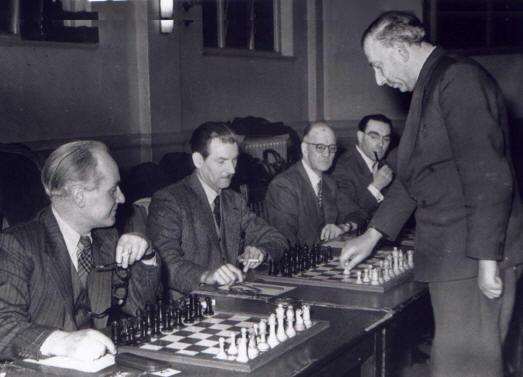
That reminds me that, when he was in his final years, and in an old person’s rest home, he arranged for his extensive library to be transferred in many large tea chests from his house in Chalfont St Giles, Bucks, to the St Leonards address where I had worked for the BCM for the last 12 years and which had recently been vacated as a result of Murray Chandler deciding to transfer BCM operations to London. I had the task, arranged with The Friends of Chess and the BCF, to do a sort-out and preliminary catalogue of his books and magazines which Harry was bequeathing to the BCF to form the nucleus of a National Chess Library. That would be a pleasant enough task, but it was prolonged into many weeks by having to decant the valuable chess material from the tea chests, much of it covered in dust and even spiders’ webs, from the many financial and other papers to do with his financial affairs. It was then that I first learned what a ‘tip sheet’ was, and it was not until stockbroker David Jarrett, BCF Hon Treasurer, came down for a visit that the dross amongst the many papers was separated from the gold and passed to Harry’s executor David Anderton.
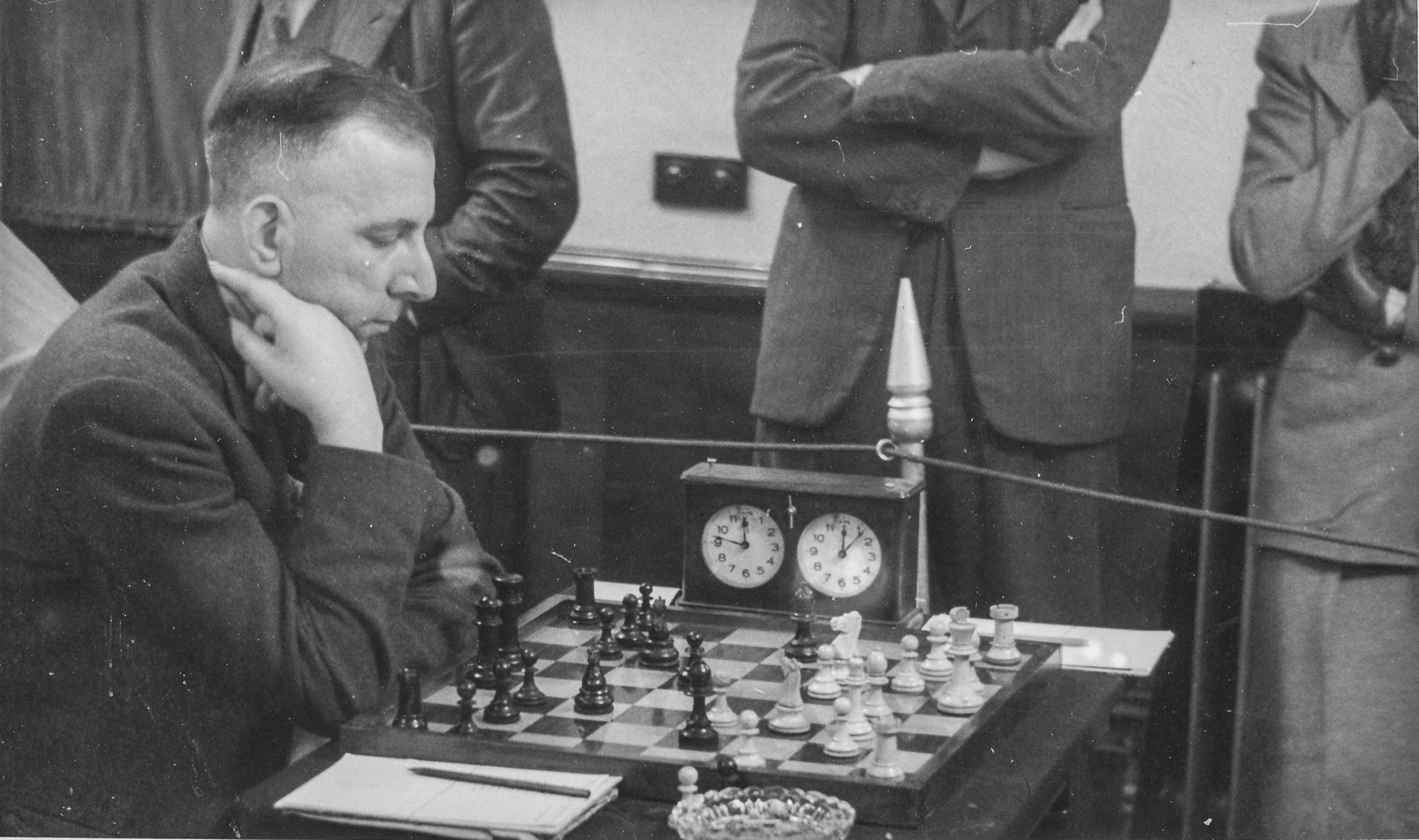
Reverting to the cup of tea story, the first time I got to know Harry well was at the British Championship at Leicester in 1960. Many of the participants were lodged in University accommodation near the venue. Every evening, after play had finished, a number of us got together for a chat over a cup of tea in the accommodation unit’s kitchen. There Harry would regale us with stories from his many visits abroad, particularly to Moscow for the world title matches involving Botvinnik. Harry had formed many interesting views on Soviet society. Amongst the stories he told was of the all-pervasive dead hand of the bureaucracy. He was used to filing his reports on the match in English at the Central Post Office. One day, a clerk behind the grille, told him he could not accept it, since the regulations stated that all outgoing material had to be in Russian.
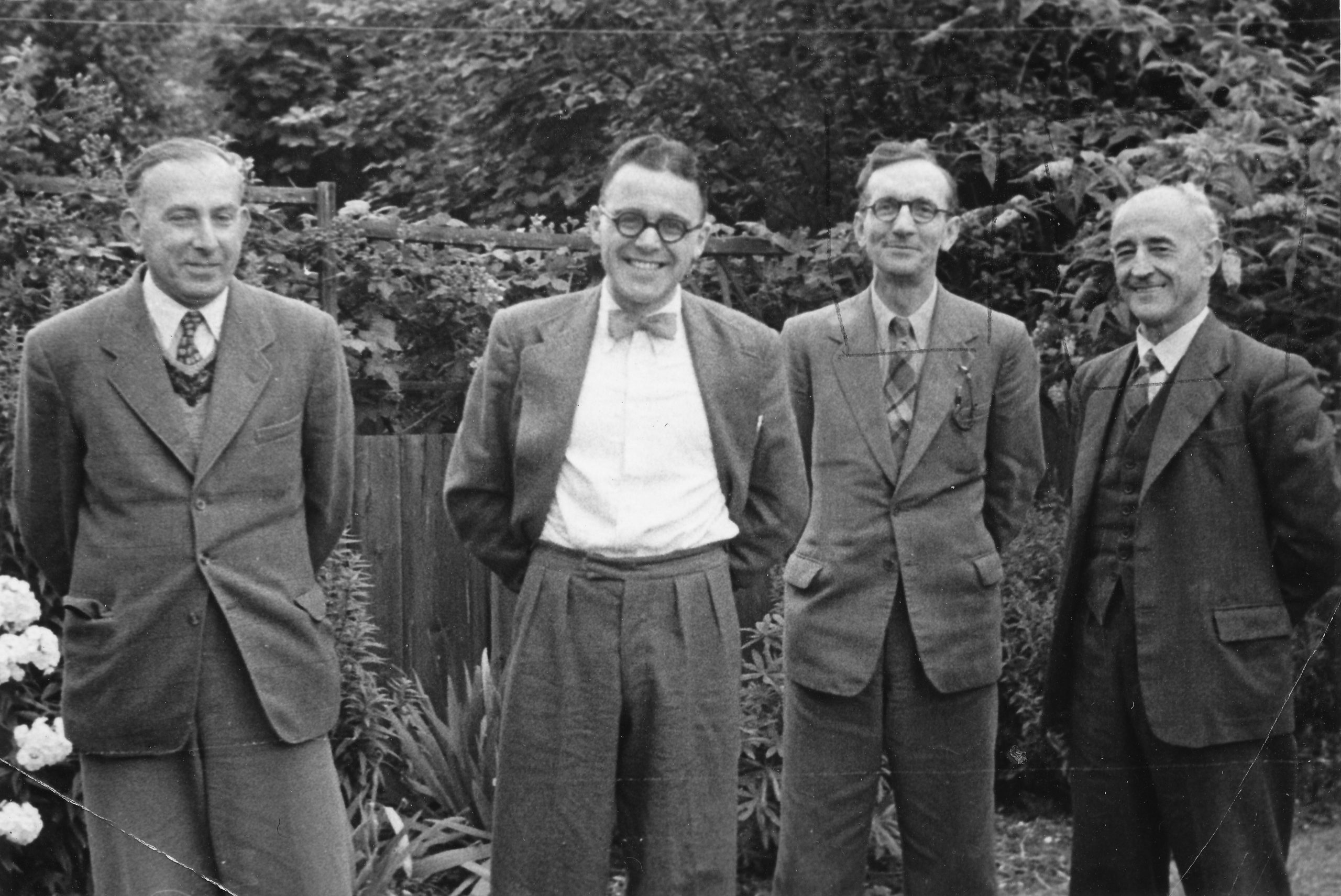
With his logical mind, and not appreciating the discipline and associated bureaucracy which the rulers tried to impose on Soviet society, Harry commented that “Yesterday, I submitted in English and it was accepted”, at which the clerk drew herself up to her full height and stated firmly: “Yesterday was yesterday, today is today”. Harry’s considered views included these: Communism would never be made to work properly in Russia, since the Russians lack the requisite discipline. “They should have tried it on the Germans. They might have made it work”. He once commented that when he went to Germany in the decade or so after the war, he was aware that some of those whom he met had been strong supporters of Nazism: “If they had had their way, they would have turned me into a bar of soap!”. I got a benefit from Harry being in Moscow. I wanted to get a copy of Chigorin’s collected games by Grekov, a very rare item. Harry duly promised to seek one out on his next visit to Moscow and a second-hand copy of this fine book came to me through the post some weeks later. No charge to me, of course.

Harry played a big role in drawing up the Rules of Chess as they applied to post-1945 competitive play. He served on the appropriate FIDE commission for decades and always argued that too precise a codification limited the discretion of the arbiter to apply a common sense solution to a concrete set of circumstances. Alas, that sensible approach has been moved away from in recent times, especially with the introduction of quick-play finishes and associated fine points about time limits.
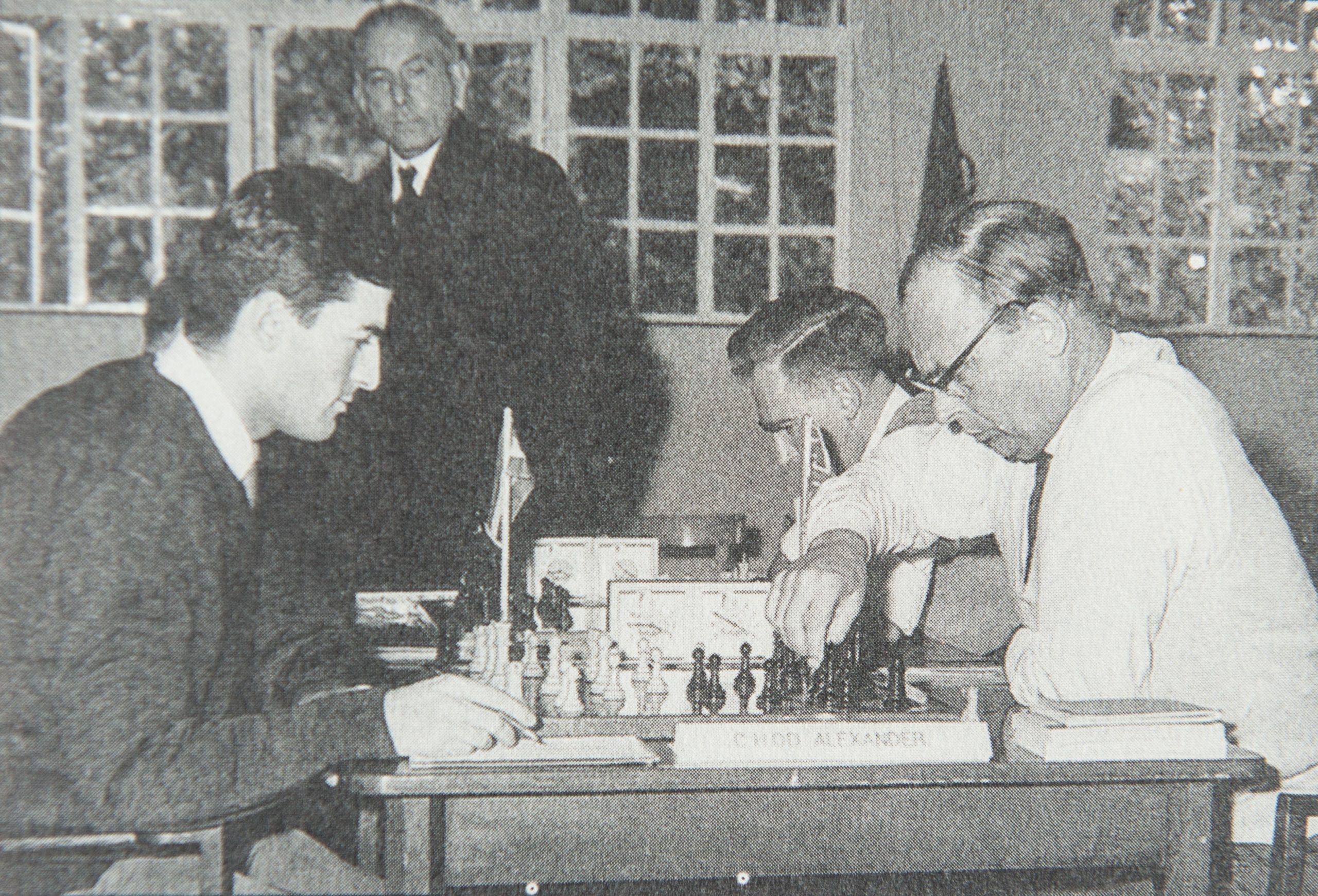
A final shrewd comment from Harry, based on his Moscow experience: “In 1917, the new Bolshevik regime claimed that they were abolishing all titles, privilege and so on. The result? Forty years later they have the most class-conscious society I have encountered.” One proof of this might be given – the Soviet internal passport system, one point of which required the holder (and for a long time no peasant was allowed such an identity document – who, then, could claim that the Tsar had abolished serfdom in the middle of the 19th century?) to state his/her ethnic origin: Russian, Ukrainian, Kalmyk, Armenian, Jew and so on. The Western mind boggles… ”
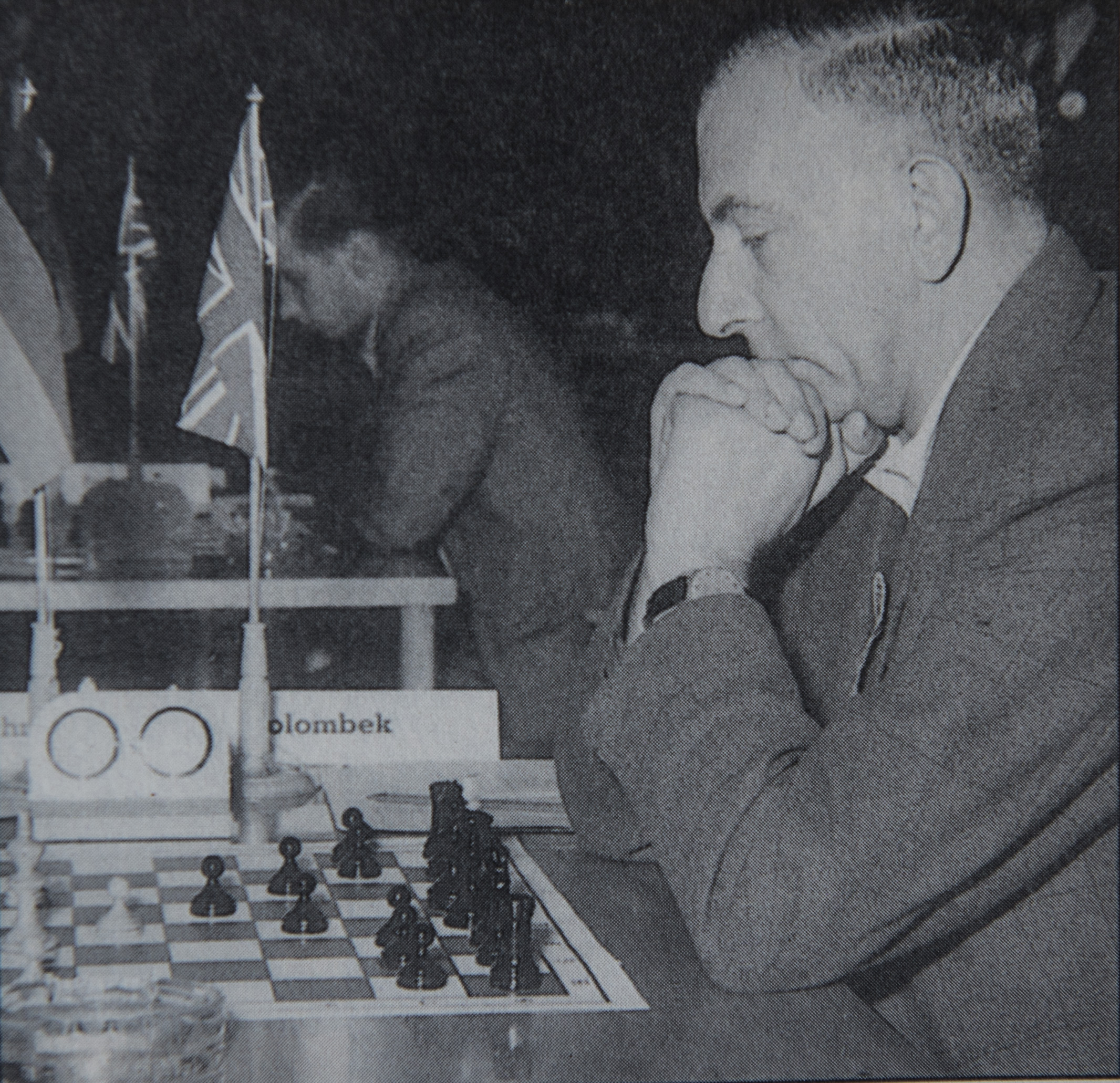
We leave the final word in reminiscences of Golombek to his near-neighbour in Chalfont St Giles, Barry Sandercock :
” Harry was a very interesting man to talk to and liked to talk about the early days when he played against some of the great players. He was also very knowledgeable on many subjects, the arts, music etc. I played him when he gave a simul at Gerrards Cross in 1955 (Jan.21st} and managed a draw after 3 hours play. I remember, the local paper once wrote an article about him, calling him an ex-world champion. I got a letter published where I pointed out that he was an ex-British Champion not ex-world champion. I hope he didn’t see that!”
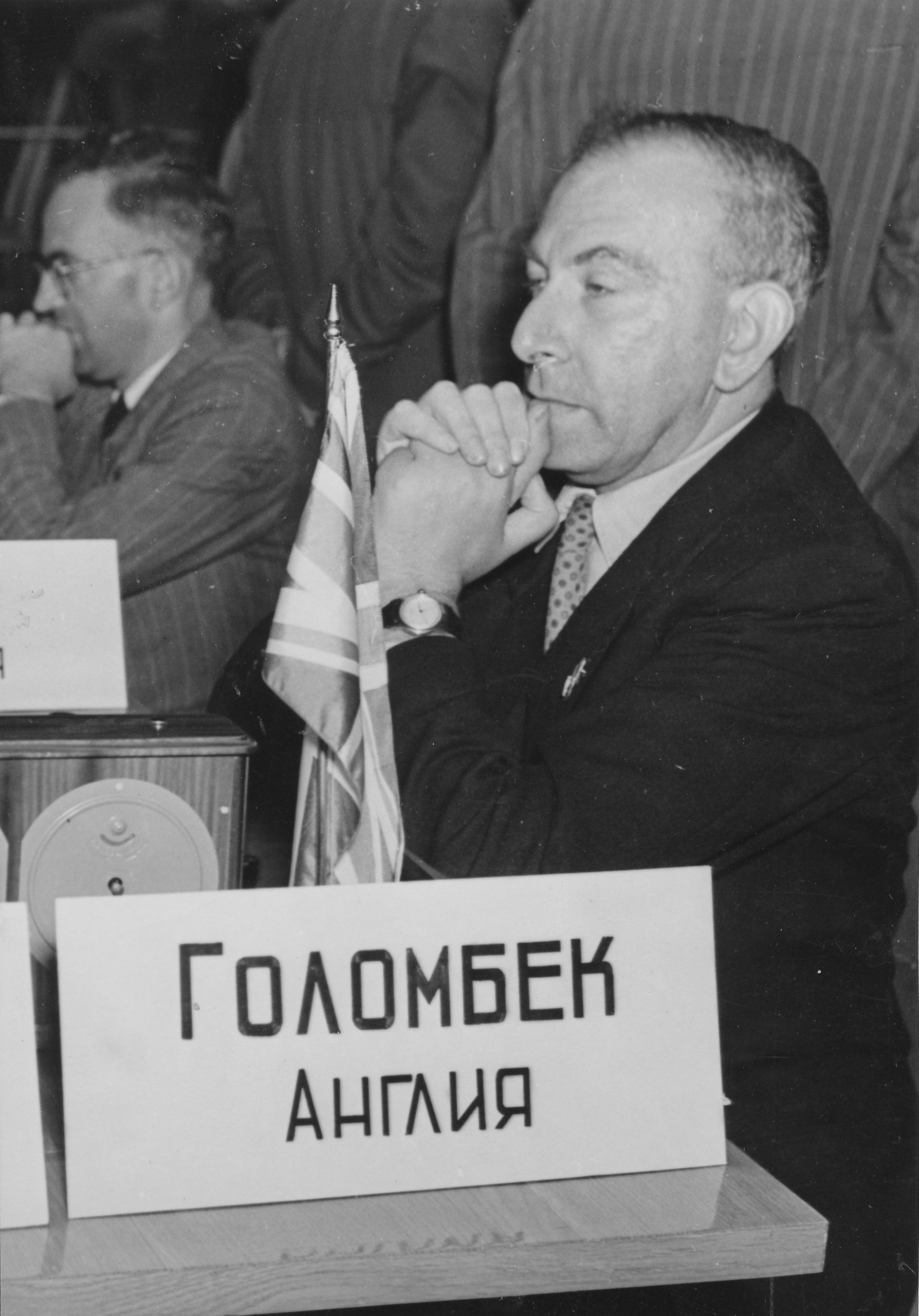
“To finish, a characteristic Golombek game, with his own notes. I (Ed) have selected one of the games from his victorious British Championship playoff match against Broadbent in 1947. It is characteristic of him in many ways. The game features a typically smooth positional build-up, from his beloved English Opening, played with the Nh3 development plan, which was a particular favourite of his. The notes are also very typically Golombek – concentrating in the main on verbal explanations, with relatively few variations, but also characterised by occasionally extreme dogmatism in his assessments, such as the notes to moves 1, 2 and 6, for example. The game and notes were published in the December 1947 issue of The British Chess Magazine.”
From The Anglo-Soviet Radio Chess Match by Klein and Winter :
“Harry Golombek is a Londoner, He was born in 1911, and learned chess when twelve years of age. He is another of those who went through the mill of the British Boys’ Championship, winning it in 1926. He has played in most English international tournaments, and has represented Great Britain in team tournaments. In the London International Tournament, 1946, he came fifth.
A graduate of London University, he served in the Foreign Office during the war, but has since retired to the country (Chalfont St. Giles). His literary activities include 50 Great Games of Modern Chess
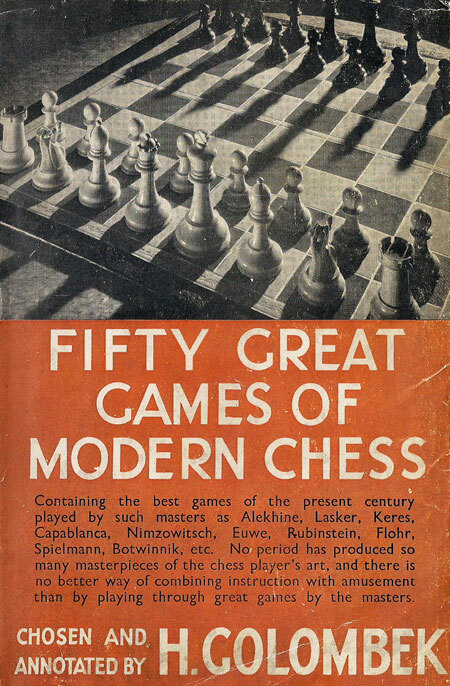
Legend, according to James Pratt, has it that HG wrote the book without the aid of a chess set!
and Capablanca’s Hundred Best Games.
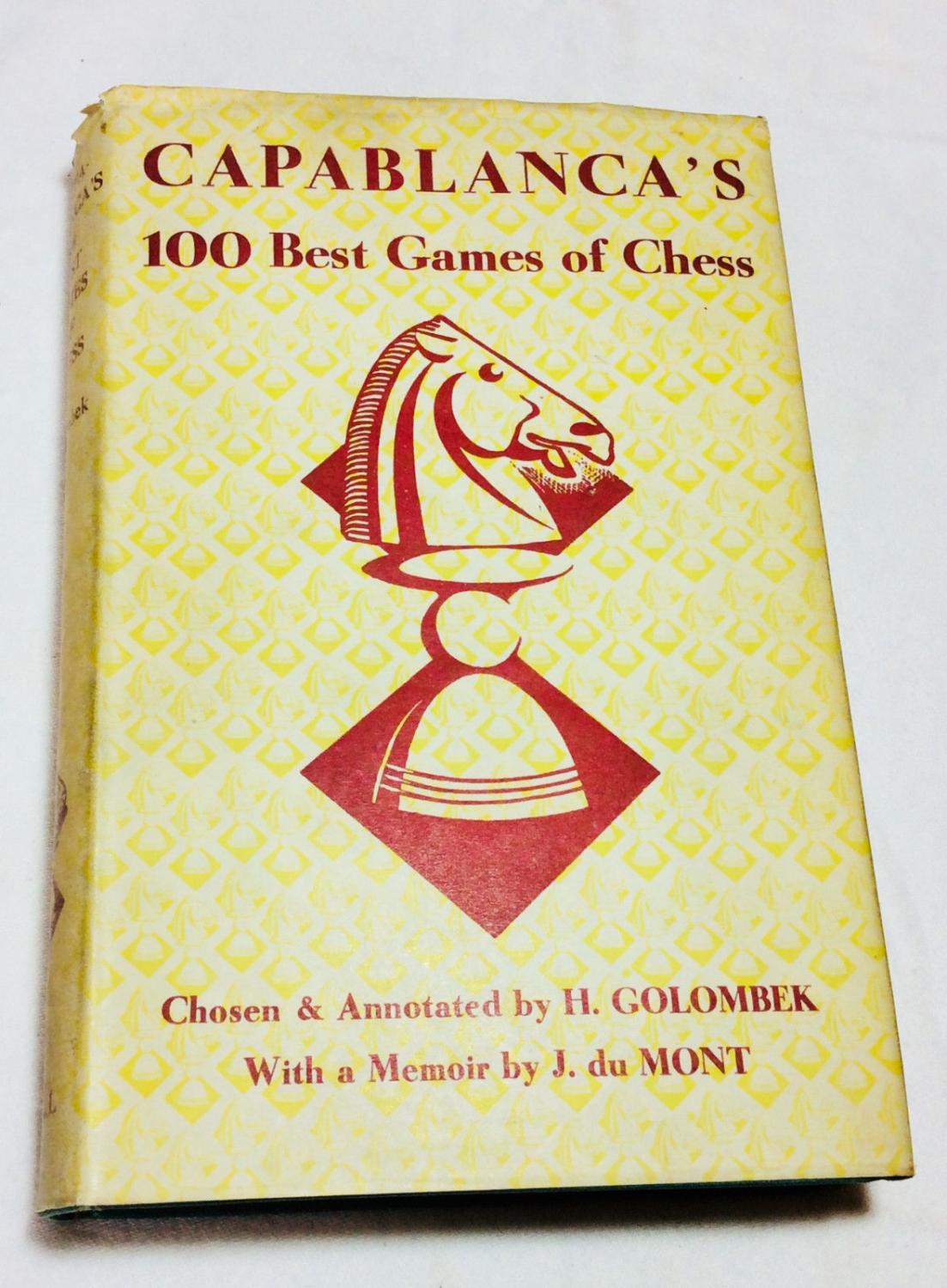
He reports chess tournaments for The Times, and edits The Times Weekly chess column.
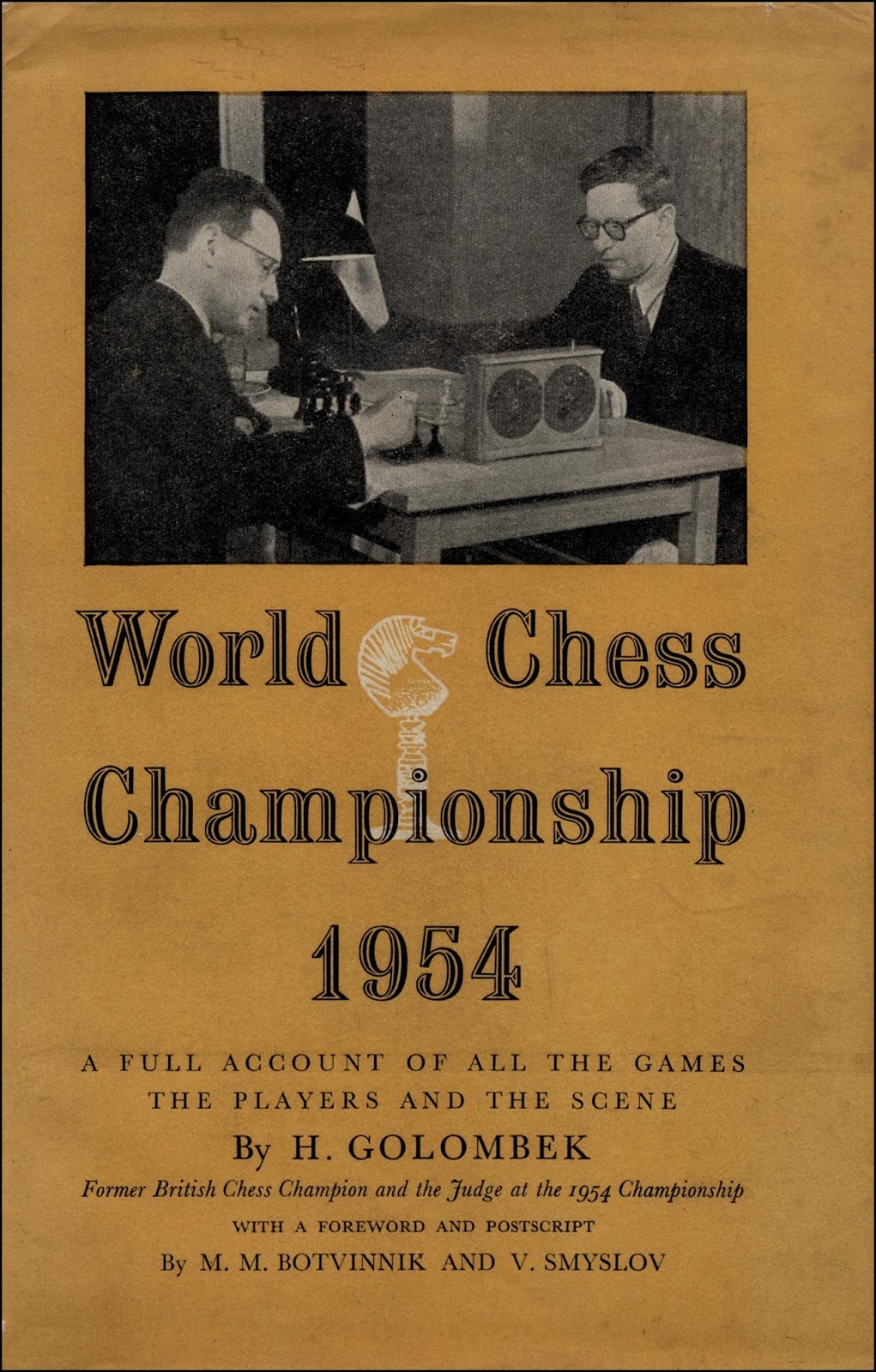
His chess is perhaps not inspired and lacks the spark of enterprise, but he is a solid player on the whole and is apt to hold the best to a draw.”
Here is HGs entry from Hooper & Whyld (The Oxford Companion to CHESS) :
“English player and author. International Master (1950), International Arbiter (1954), honorary Grandmaster (1985). In 1945 Golombek became chess correspondent of The Times, a position he held until 1989. Also in 1945 he decided to become a professional chess-player.
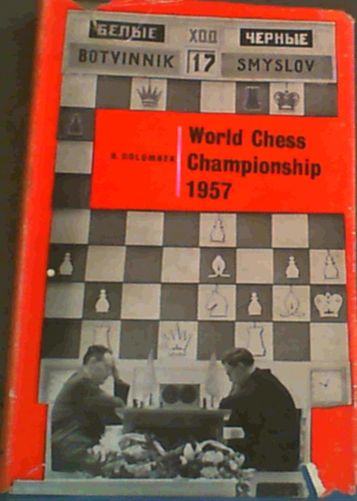
He won the British Championship three times (1947, 1949, 1955) and was equal first in 1959 but lost the play-off (to Jonathan Penrose) and played in nine Olympiads from 1935 to 1962. An experienced arbiter and a good linguist, supervisor of many important tournaments and matches, he served for 30 years on the FIDE Commission that makes, amends, and arbitrates upon The laws and rules of chess.
His many books include Capablanca’s Hundred Best Games (1947),
The World Chess Championship 1948 (1949),
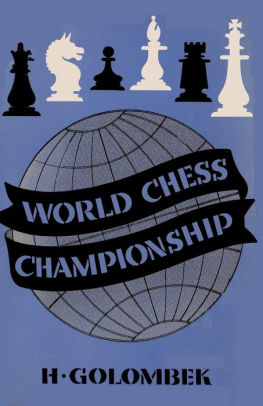
Réti’s Best Games of Chess (1954),
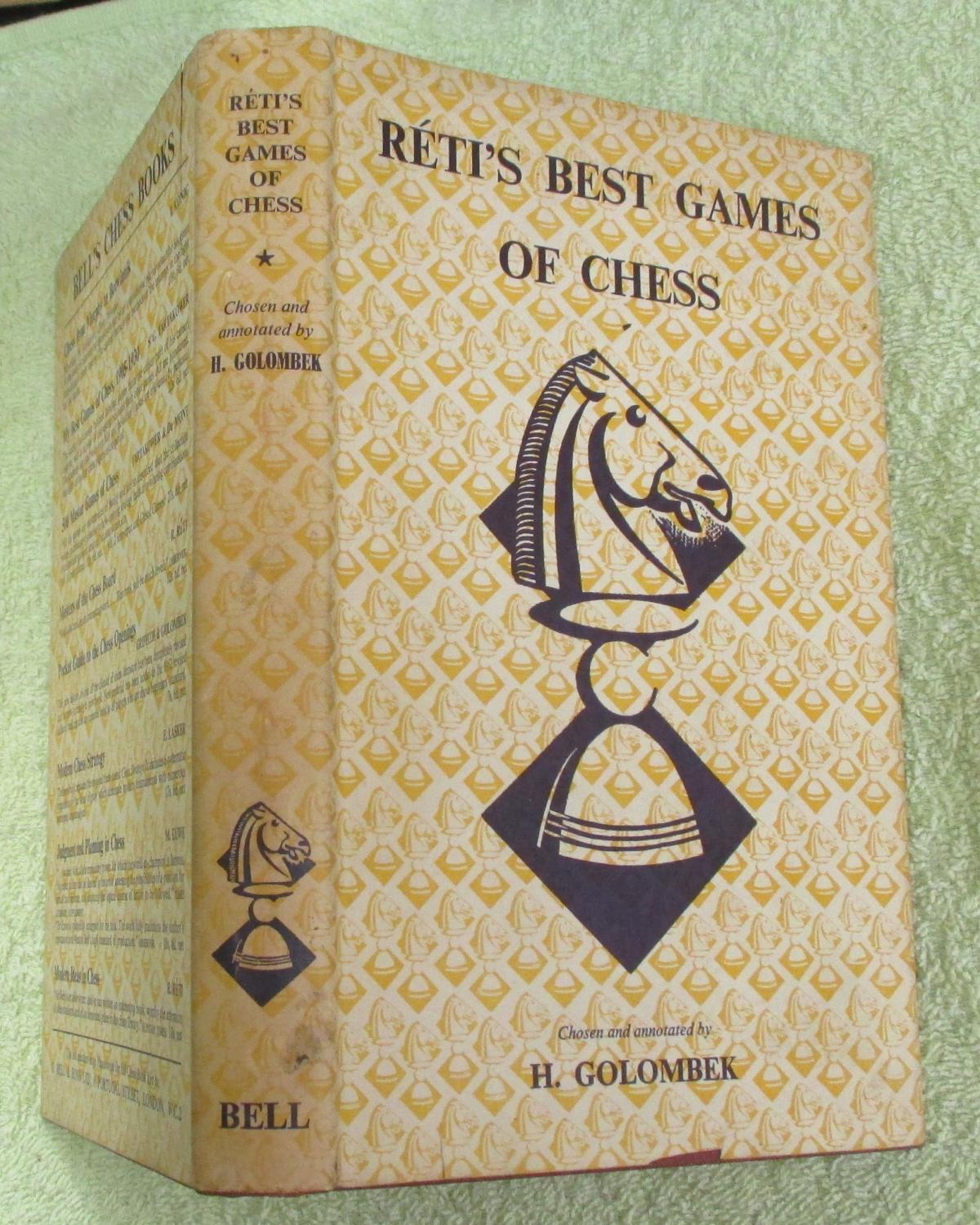
and A History of Chess (1976).”
Golombek accurate but unforceful
H. Golombek, the Present Chess Correspondent of The Times is in every way a contrast to Alexander. His forte is accurate positional play which brings him many good victories against the ordinary rank and file but rarely yields better than a draw against the very best. The grand master needs more than accuracy to shake his equanimity.
Golombek has a wide theoretical knowledge and seems equally at home in every type of opening, though his preference is for the close variety. He is a fine analyst and has
written a number of very interesting books of which I must make special mention of The World Chess Championship 1948. During a sojourn in hospital I worked my hardest to flnd flaws in the annotations to this work, but quite without success.
He is Games Editor of the British Chess Magazine and has considerably enhanced the reputation of that journal. Very popular abroad, he was asked to officiate as judge at the world championship match in Moscow between Botvinnik and Smyslov. Although as far as settling disputes is concerned the job was, I understand, a sinecure, the appointment was a high honour both to Golombek himself and to the country he represents.
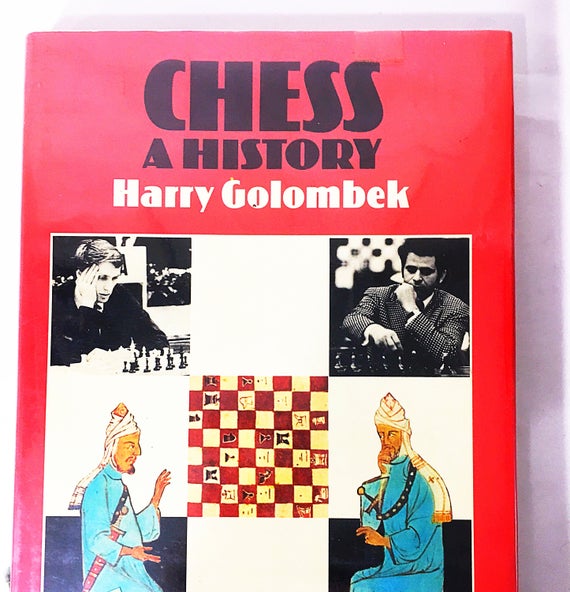
From The Encyclopaedia of Chess (Robert Hale 1970 & 1976), Anne Sunnucks :
“International Master and International Chess Judge. British Champion in 1947, 1949 and 1955. Captained the British Chess Federation team for many years in Chess Olympiads. In the 1972 Olympiad, captained the BCF women’s team. Chess author and chess correspondent of The Times since 1945 and the Observer since 1955. British Chess Federation to FIDE.
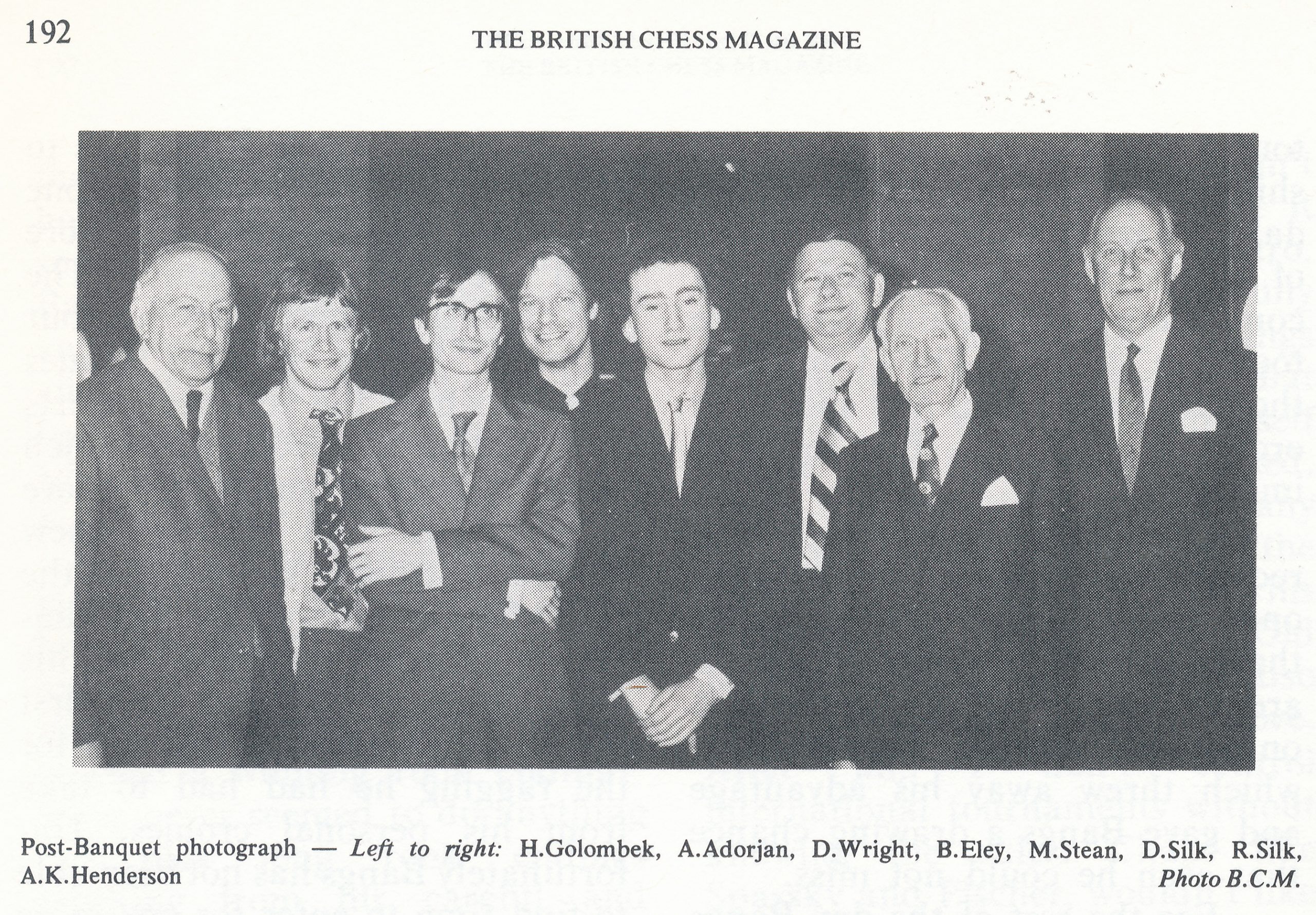
Born in London on 1st March 1911, Golombek learned to play chess at the age of 12 and in 1929 won the London Boy’s Championship. Two years later he became the youngest player to win the Surrey Championships. After graduating in languages at London University, Golombek devoted his full time to chess, apart from the way years, when served in the army and at the Foreign Office, and was awarded the OBE for his services to the game in 1966. He was the editor of the British Chess Magazine from 1938 to 1939 and for many years served as its games editor. He is now its overseas news editor. In his capacity as International Chess Judge, he has acted as judge in World Championship matches since 1954.
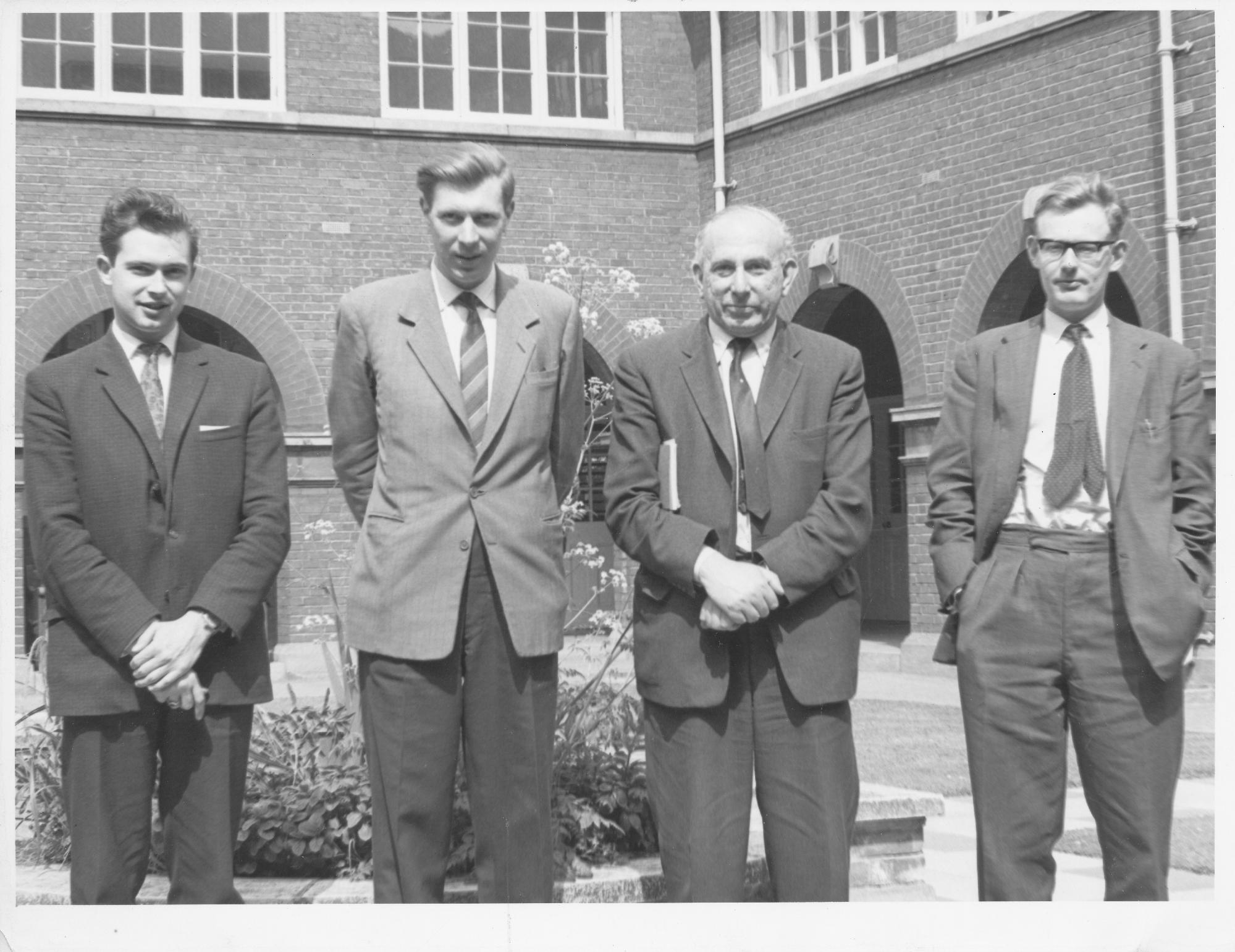
He has competed in a number of international tournaments, his best results being 1st at Antwerp 1938, 1st at Leeuwarden 1947, 1st at Baarn 1948 and -4th with Barcza, Foltys and Gliogoric at Venice 1949. in 1951, he represented the British Chess Federation in the Zonal tournament at Bad Pyrmont and came 5th, qualifying for the Interzonal. ”
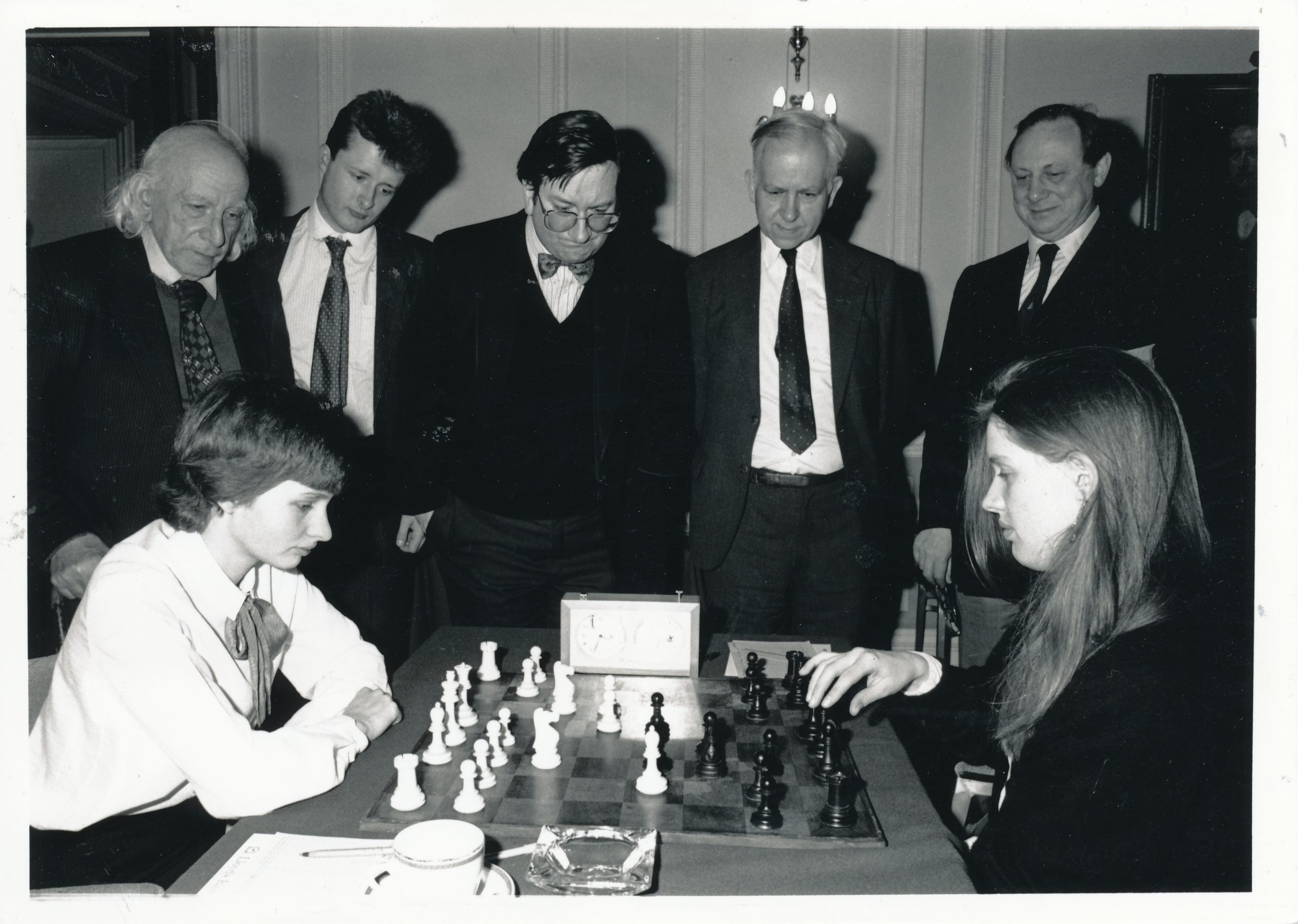
His publications include : Capablanca’s 100 Best Games of Chess (1947); World Chess Championship 1948 (1949); Pocket Guide to the Chess Openings (1949);
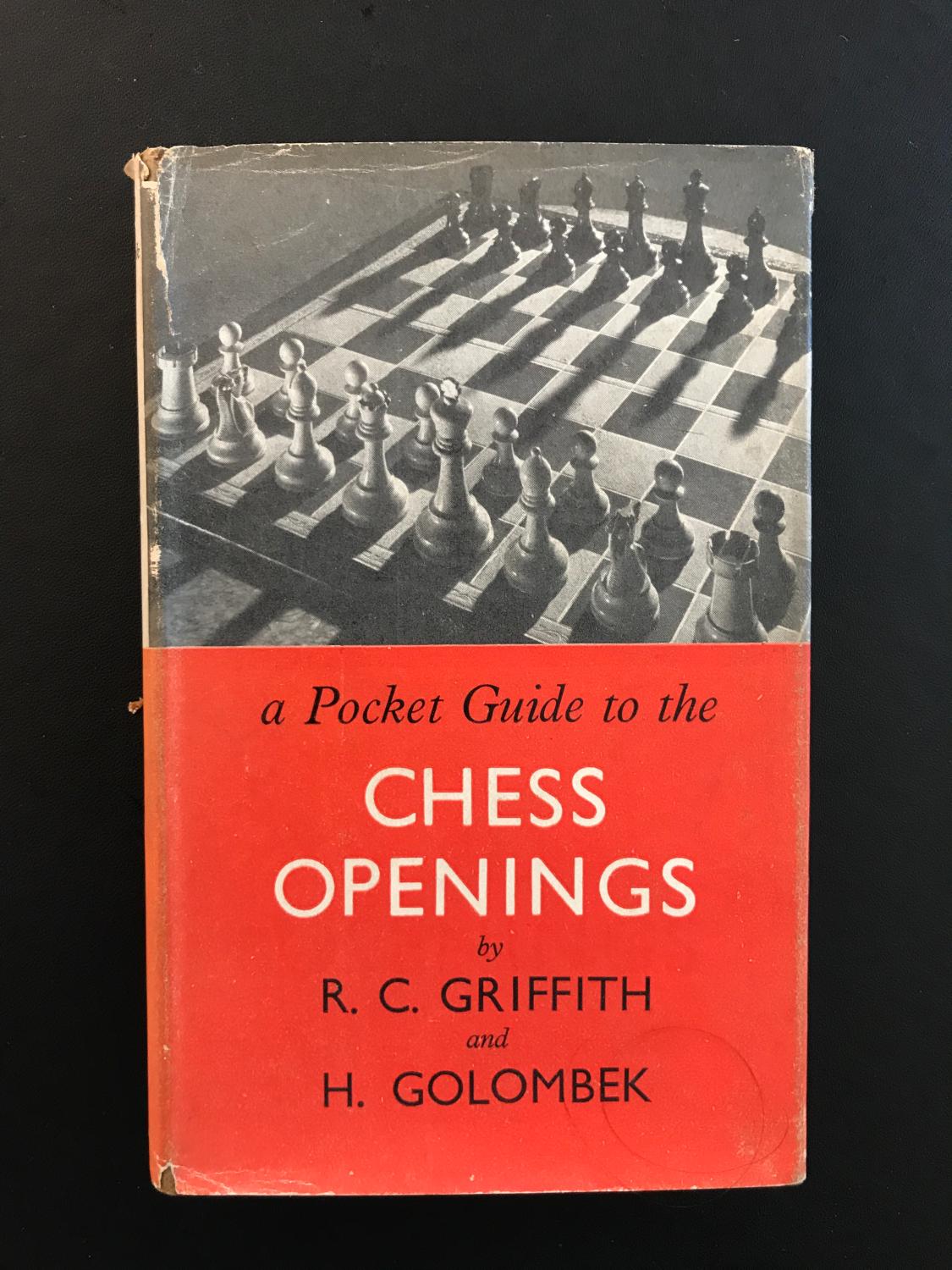
Hastings Tournament 1948-1949 (1949);
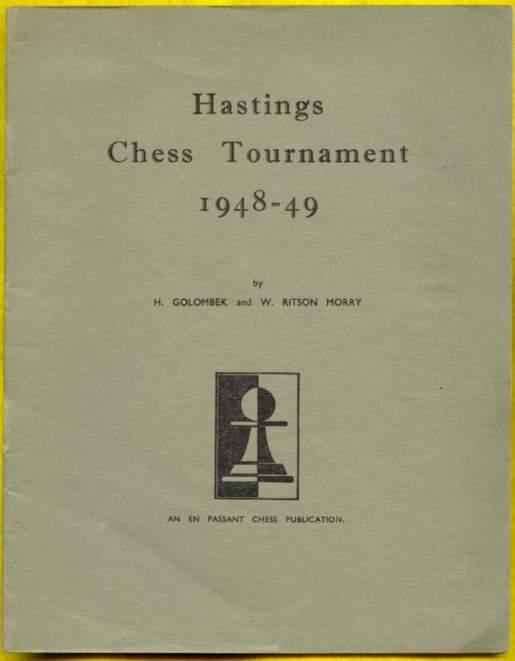
Southsea Tournament 1949 (1949); Prague 1946 (1950);
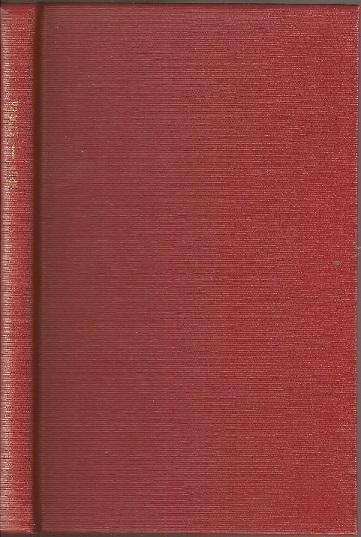
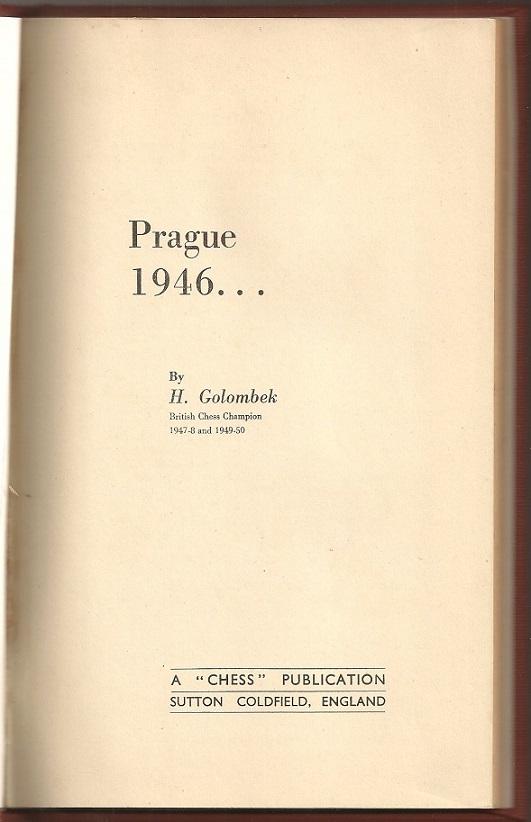
Budapest 1952 (1952);
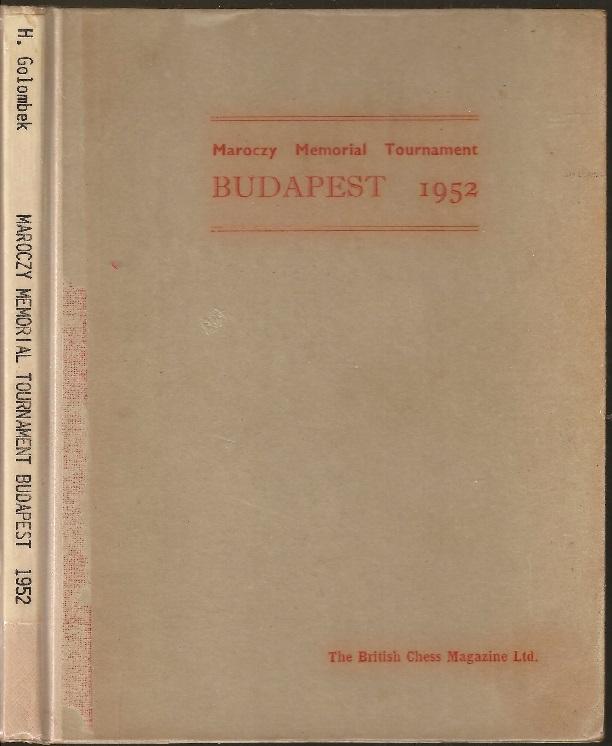
50 Great Games of Modern Chess (1952); Reti’s Best Games of Chess (1954); 22nd USSR Championship (1956);
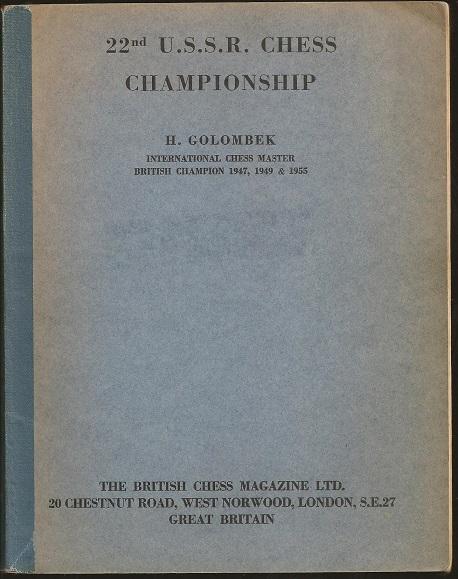
World Chess Championship 1957 (1957); Modern Opening Chess Strategy (1959);
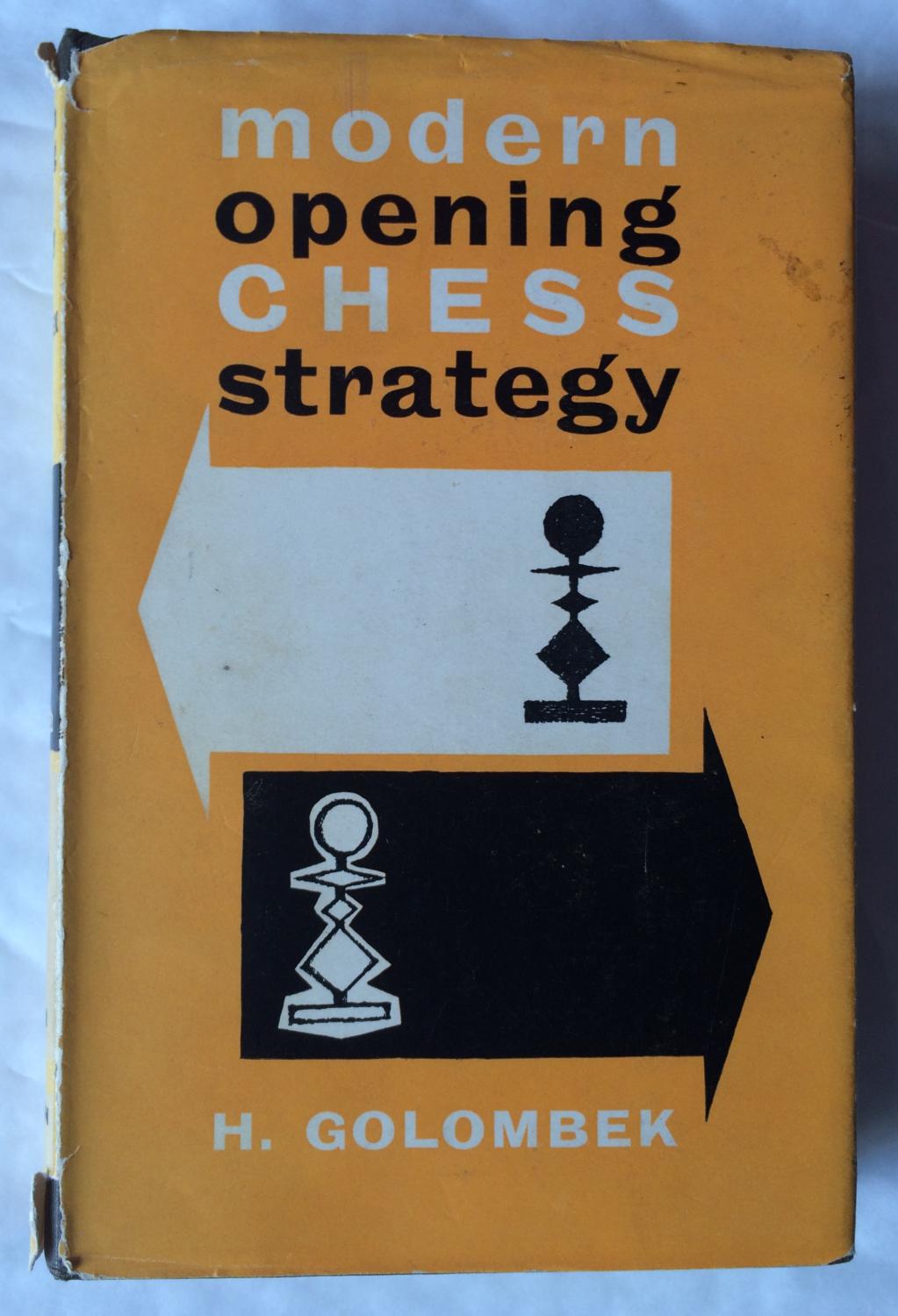
and a translation of The Art of the Middle Game by P. Keres and A. Kotov.
He enjoys classical music and has been known to be successful on the Stock Exchange.”
A reasonable enquiry might be : “What did Harry write about himself?” Well, according to
The Encyclopaedia of Chess (Batsford, 1977)
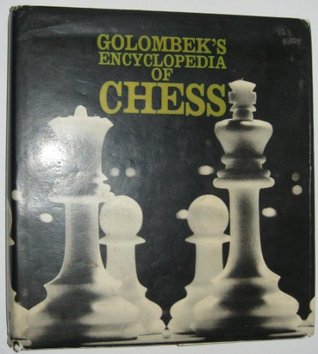
we have :
“British international master, three times British champion and the first person to figure in that country’s Honours List on account of his services to chess. Golombek was born in London and lived there till the Second World War. Educated as Wilson’s Grammar School and the University of London, he became London Boy Champion in 1929 and London University Champion 1930-3. By this time he was part of a trio of the leading players in England, the other two being Alexander and Milner-Barry. (Ed : It is curious that HG does not mention William Winter : maybe they were not like minded souls?)
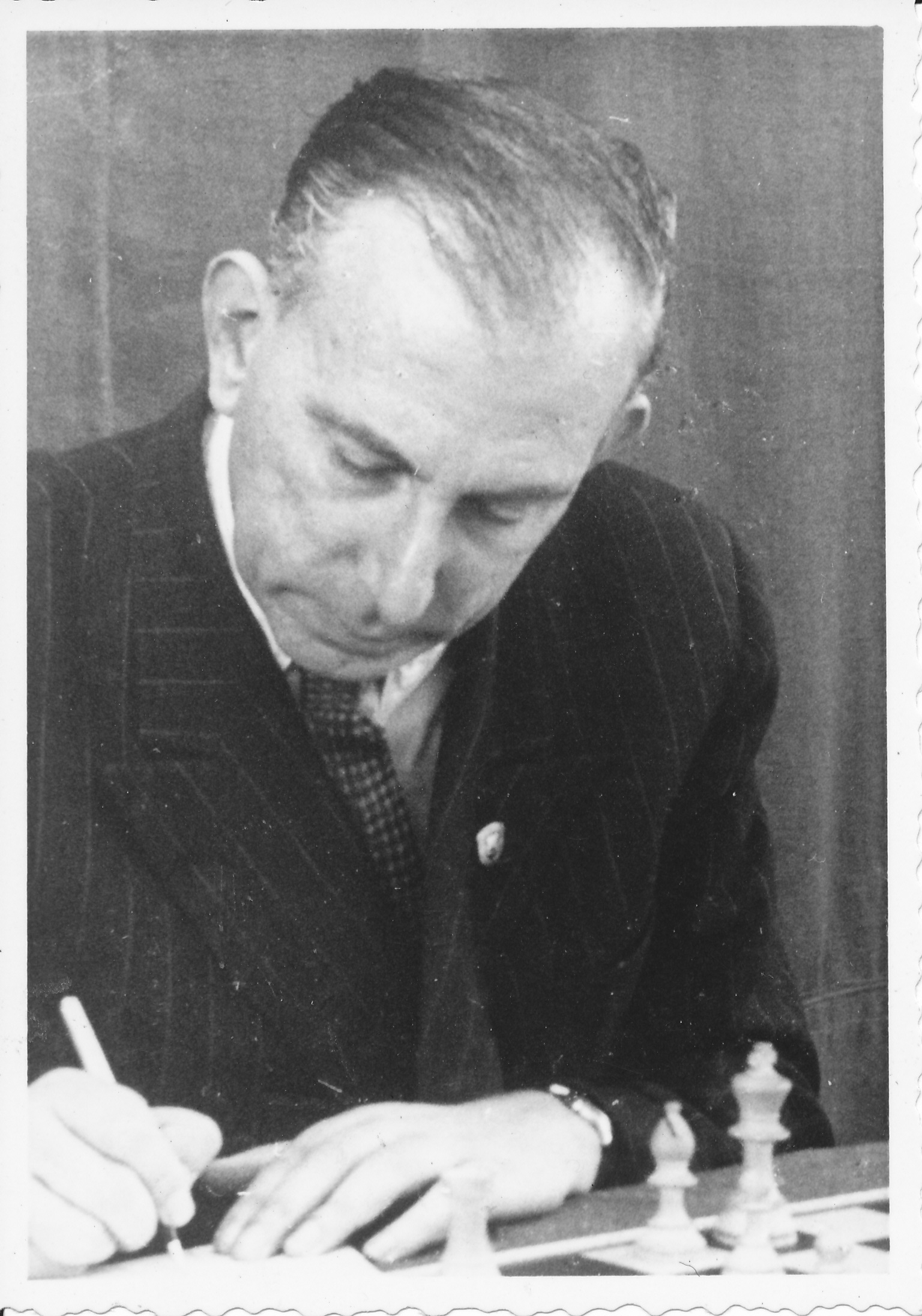
His best result in the British championship before the Second World War was -2nd with EG Sergeant, 1/2 a point below Alexander at Brighton 1938. In that year he won first prize in a small international tournament at Antwerp ahead of Koltanowski. In 1938 too he became editor of the British Chess Magazine and occupied this post till he entered the army in 1940.
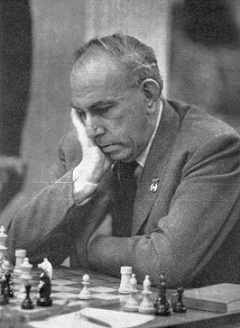
Before the war he had already played in three International Team Tournaments (or Olympiads as they subsequently became called) at Warsaw 1935, Stockholm 1937 and Buenos Aires 1939.
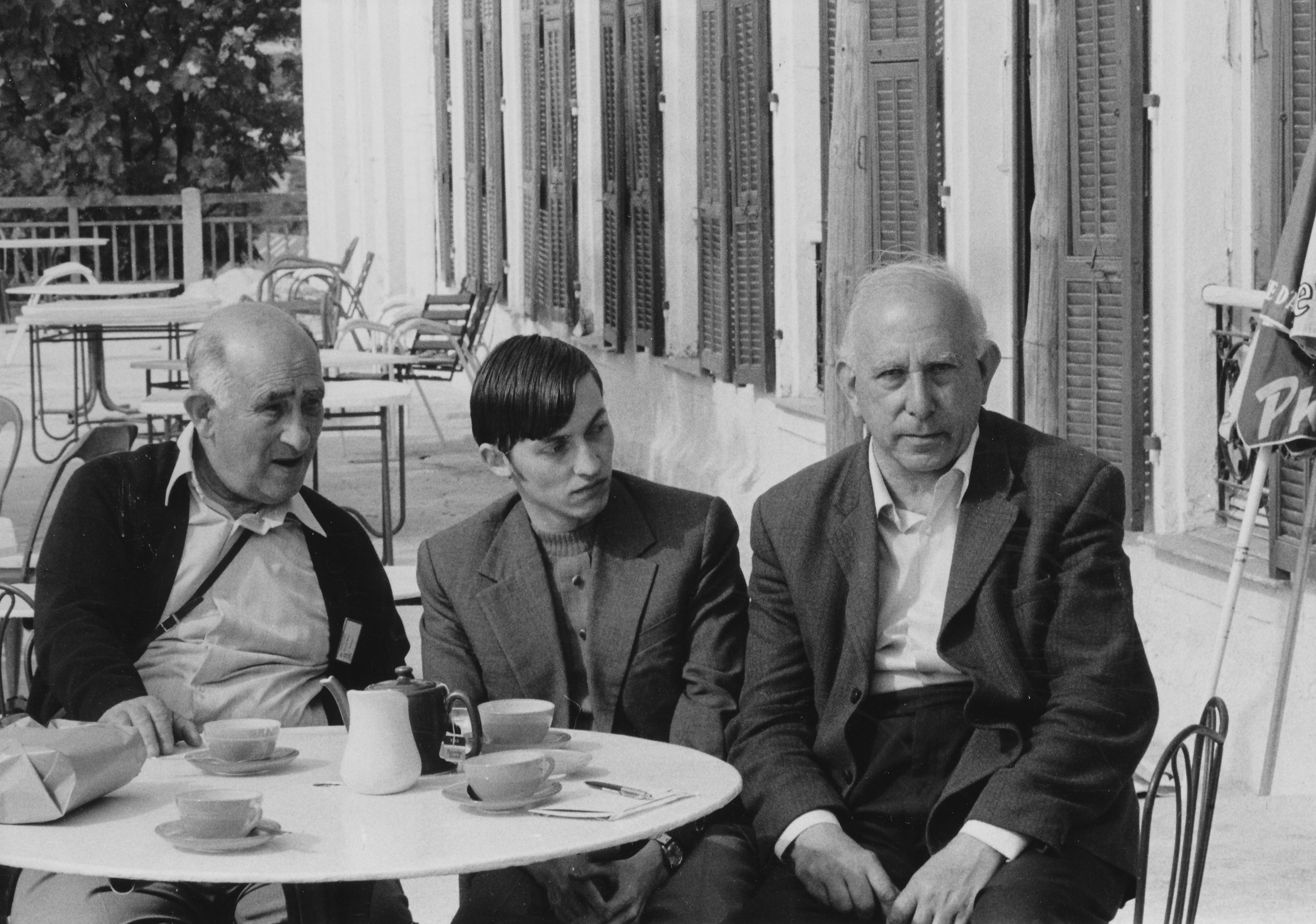
After the Buenos Aires event he went onto play in an international tournament at Montevideo where he came second to the World Champion, Alexander Alekhine.
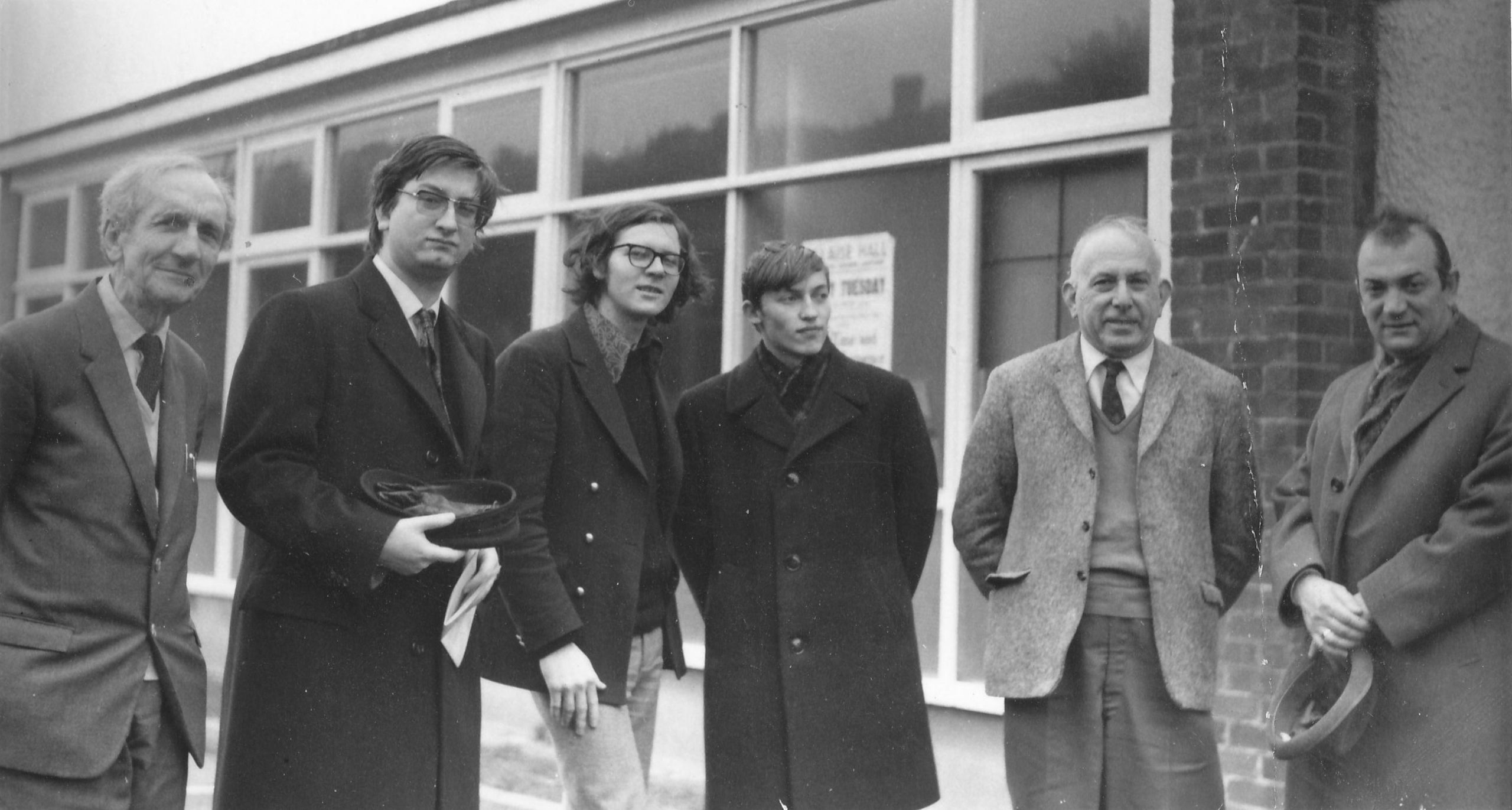
In the war he served first in the Royal Artillery, from 1940-1 and then, for the rest of the war, in the Foreign Office at Bletchley Park, employed (like Alexander, Milner-Barry and quite a number of other chess-players) in code breaking.
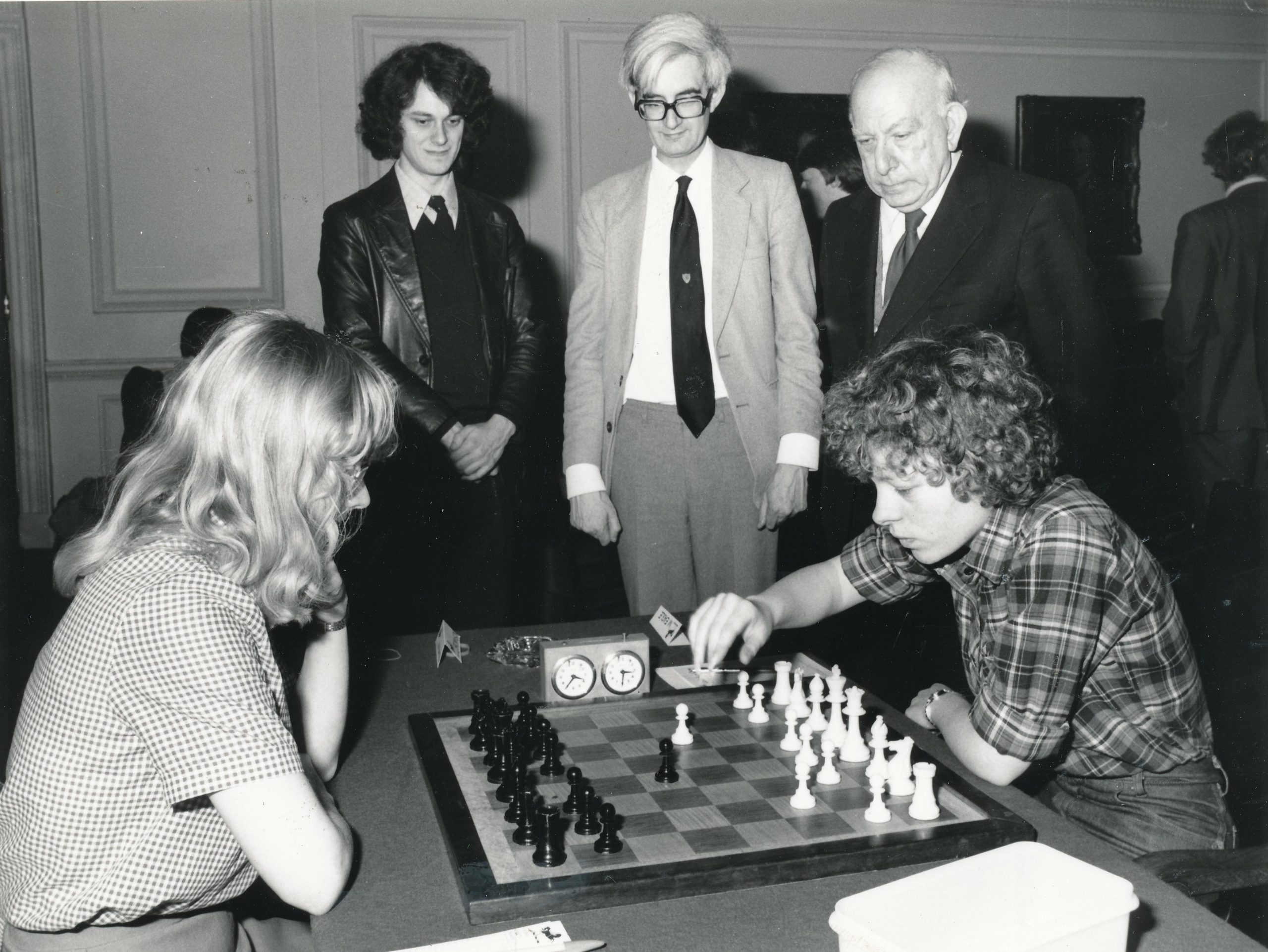
After the war he made chess and writing about the game his livelihood, becoming Times Chess Correspondent in 1945 and Observer Chess Correspondent in 1955. As a player he had a consistently good record in the British Championship, coming in the prize list on fourteen out of eighteen occasions he competed in the event. He was British Champion at Harrogate 1947, Felixstowe 1949 and Aberystwyth 1955.

Here is HGs win against his old friend PS Milner-Barry from Aberystwyth 1955 :
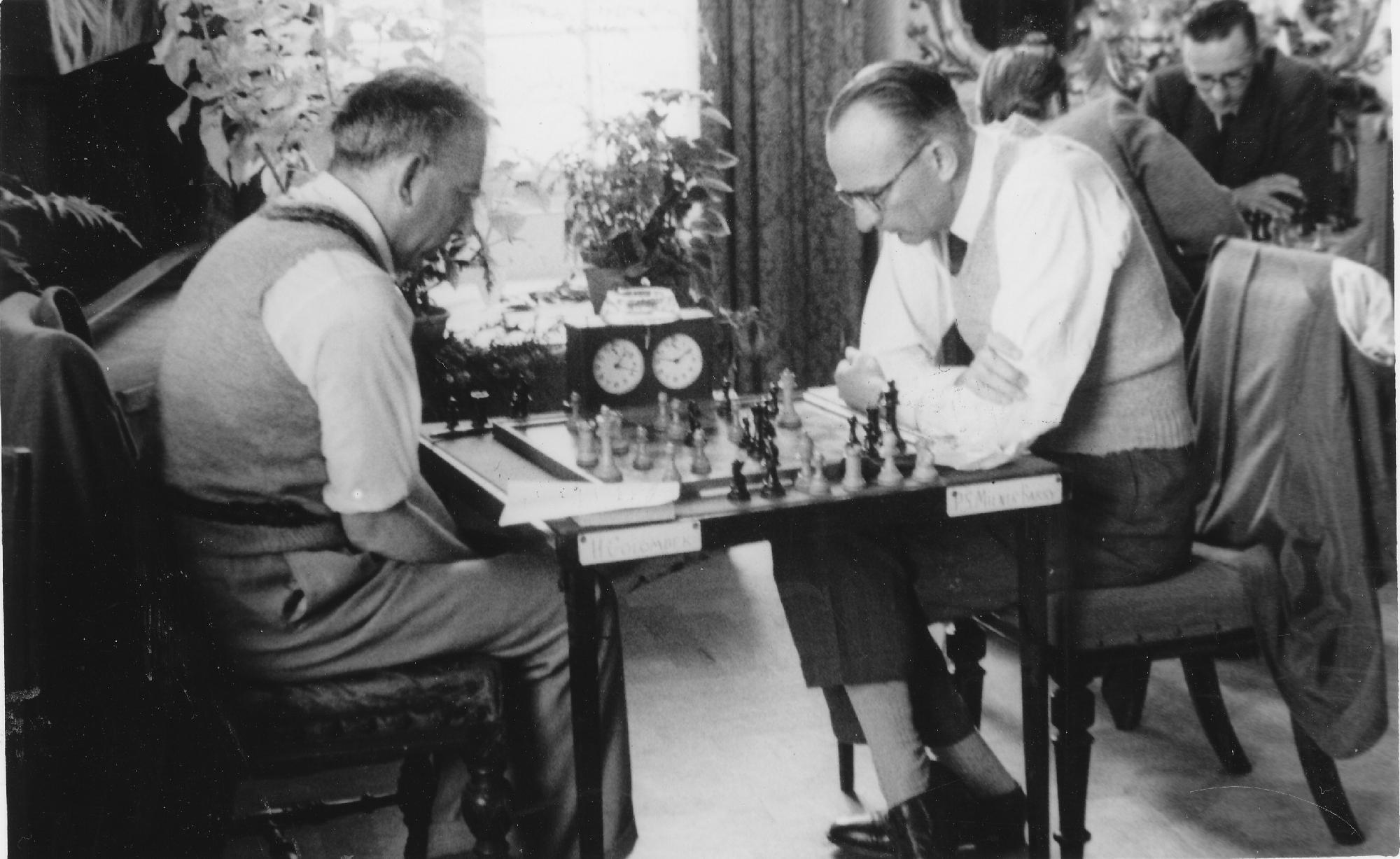
He represented England in six more Olympiads, Helsinki 1952, Amsterdam 1954, Moscow 1956, Munich 1958, Leipzig 1960 and Varna 1962.
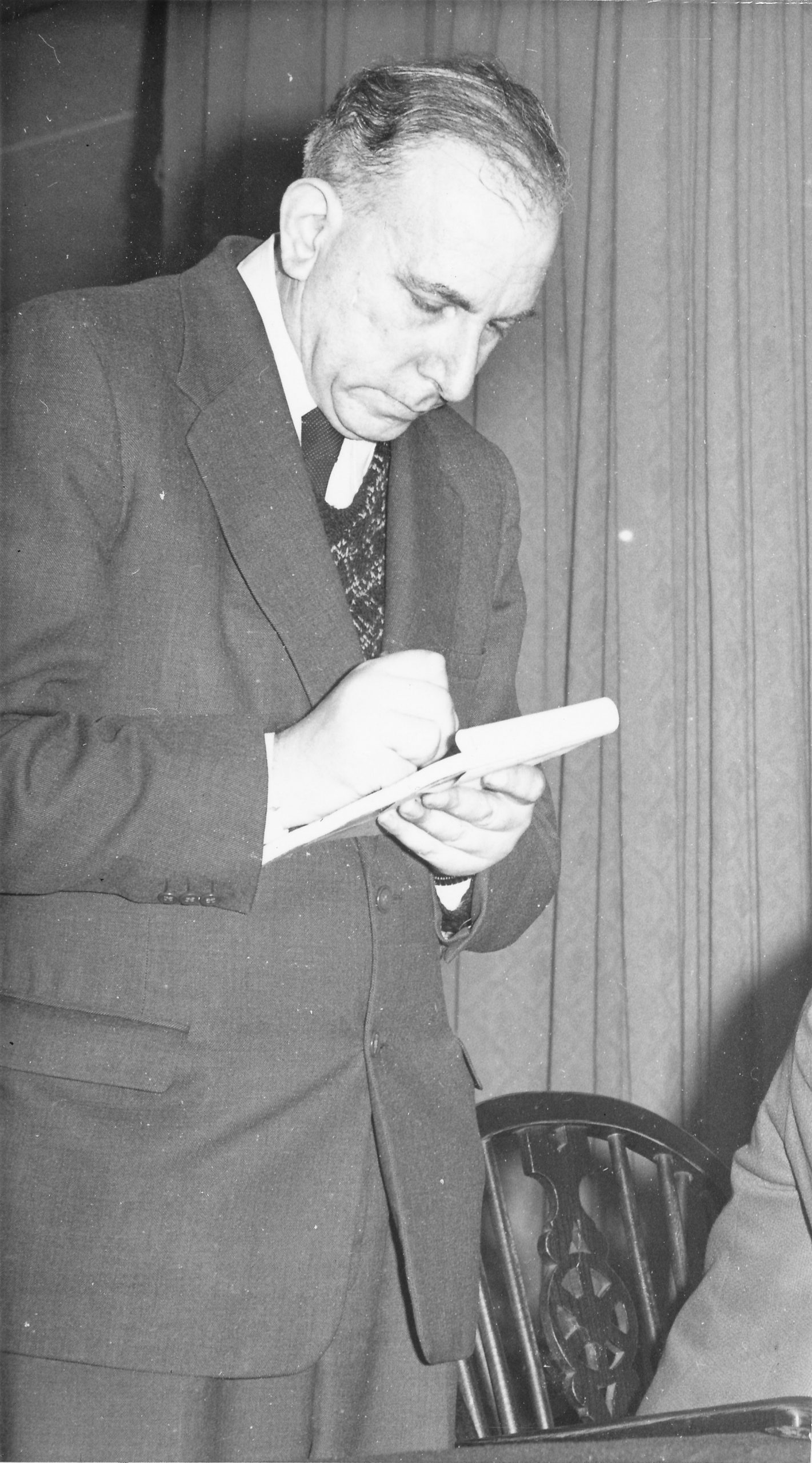
His best individual international results were first prizes at small tournaments in Leeuwarden 1947, Baarn 1948 and Paignton 1950 (above Euwe and Donner); =4th with O’Kelly at Beverwijk 1949, =4th with Barcza, Foltys and Gligoric at Venice 1949, and 5th at the European Zonal tournament at Bad Pyrmont 1951, thereby becoming the first British player to have qualified for the Interzonal. He was awarded the OBE in the Queen’s Birthday List in 1966.

A founding member of the FIDE Commission for the Rules of Chess, he became a FIDE International Judge and as such officiated at six World Championship matches. He was also chief arbiter at a FIDE Candidates tournament, at an Interzonal and two European Team Championship finals, etc. When the FIDE President, Dr Euwe, had to return home from Reykjavik before the 1972 Spassky-Fischer match got started. Golombek represented FIDE in Iceland and did much to ensure that the match took place and that it continued to be played.
Harry gave more than the average number of simultaneous displays in this career. For the photograph below Leonard Barden provided the following caption :
“Harry was invited because it was the 50th anniversary of his victory in the London Boys 1929 a success which he often referred to in his Times column. There were seven 30-board simuls that day, the top three being England Juniors v USSR (Spassky, Vasyukov, Kochiev) where Spassky had the worst simultaneous result of his career. No 4 was by Murray Chandler, Harry was No5 and the others by Whiteley and Rumens. The juniors who played the Russians were personally invited.”
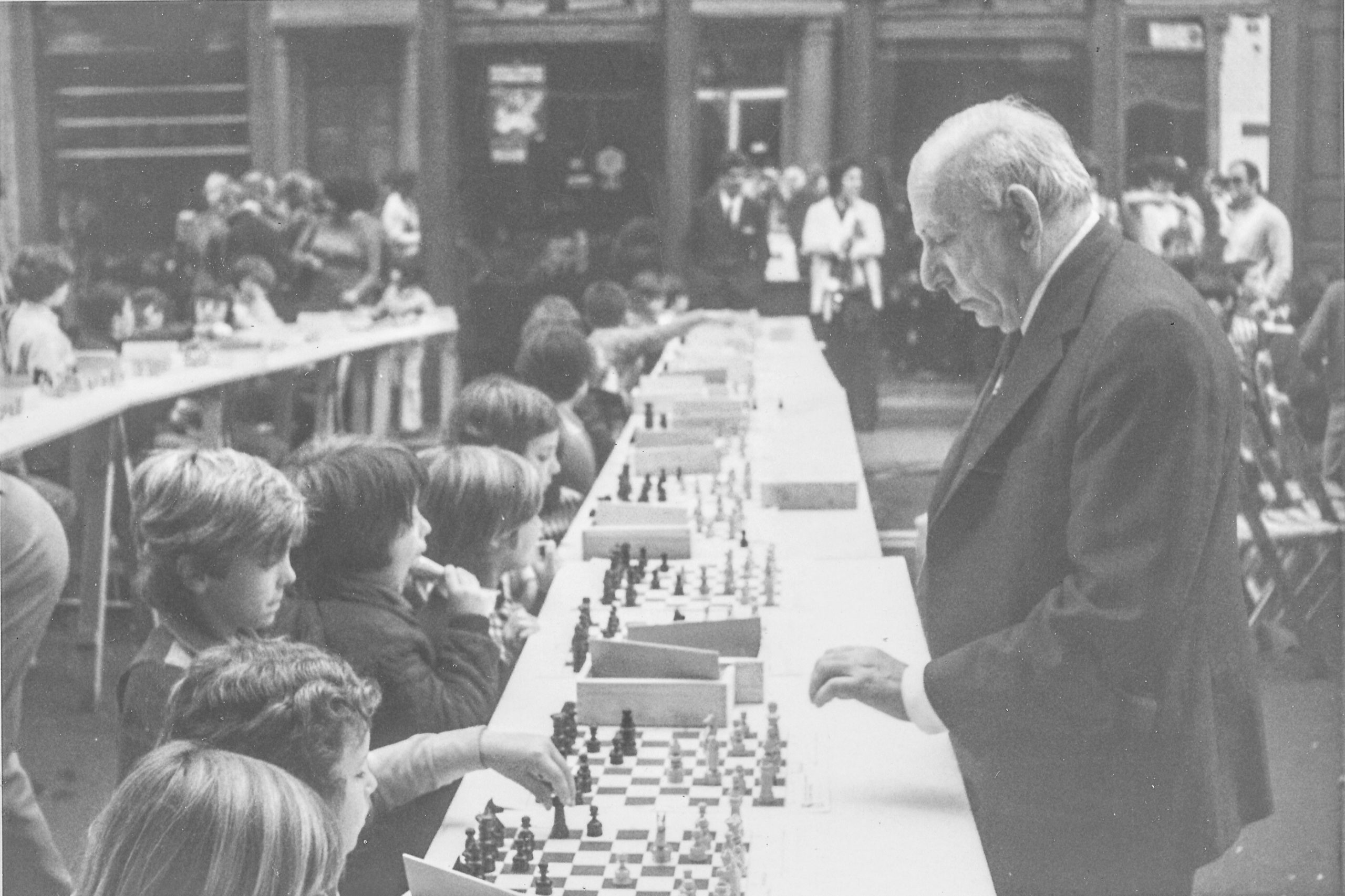
A prolific writer and translator of books on the game, he has had some thirty-five books published on various aspects of chess. Among them are : Capablanca’s Best Games of Chess, London, New York 1947; Reti’s Best Games of Chess, London 1954; New York 1975; The Game of Chess, London 1954; Modern Opening Chess Strategy, London 1959; A History of Chess, London, New York 1976.“

From British Chess (Pergamon Press, 1983), Botterill, Levy, Rice and Richardson, we have this rather brief biography :
“Thee times British Champion (Harrogate 1947, Felixstowe 1949, Aberystwyth 1955) and the first person to figure on the Honours List for services to Chess. He has represented England in 9 Olympiads. A FIDE International Judge and Arbiter has has officiated at 6 World Championship matches. He is chess correspondent of The Times and a prolific writer and translator”
Here is his brief Wikipedia entry
and here is a fascinating insight into HGs Bletchley Park days.
Bill Hartston wrote this excellent obituary published in The Independent.
A recent article from Andre Schultz of Chessbase.
Edward Winter has written this interesting article last updated in December 2020 despite announcing self-dormancy in March 2020.
Here we have a selection of publications not already mentioned above :
